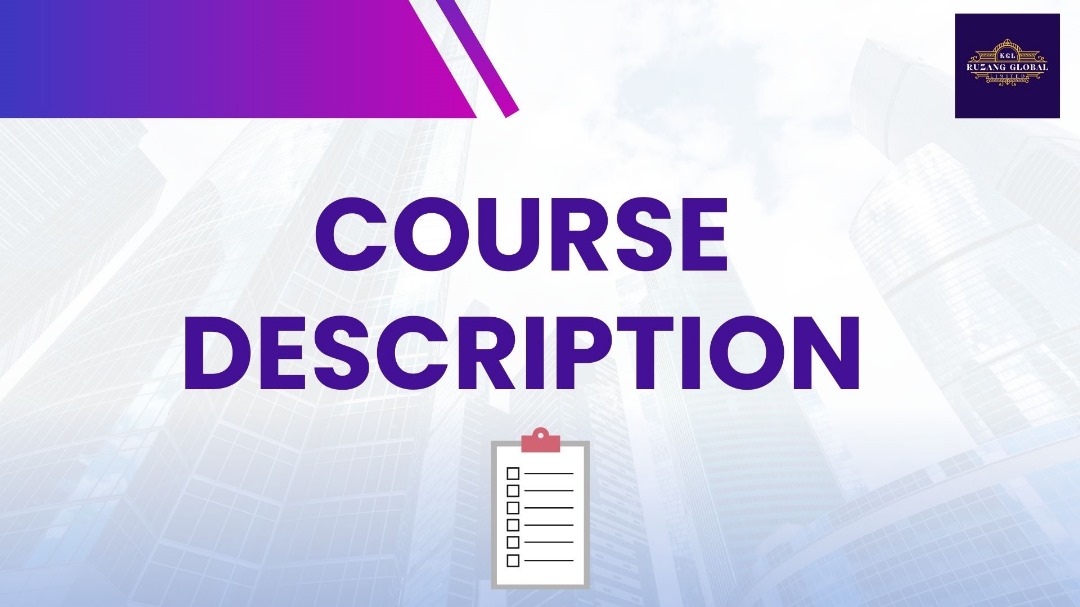
RESOURCES
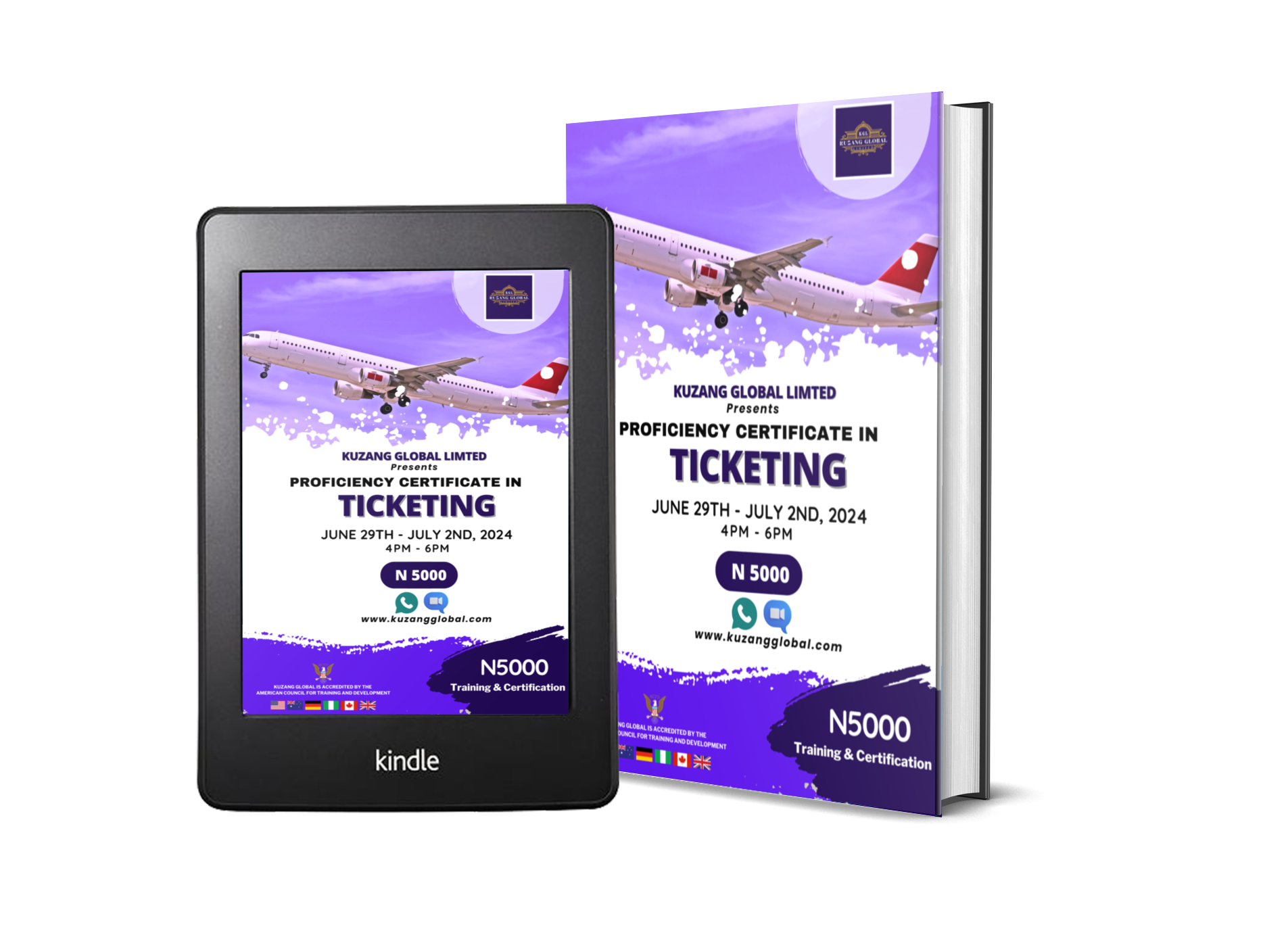
KUZANG GLOBAL PROFICIENCY IN TICKETING LECTURE NOTES JULY 2024
Course Description:
This course provides a comprehensive understanding of ticketing systems, processes, and best practices in the travel and hospitality industry. Students will learn the fundamentals of ticketing, including reservation systems, fare calculations, ticket issuance, and customer service techniques. The course will cover both theoretical concepts and practical applications to prepare students for careers in ticketing agencies, airlines, hotels, and other related industries.
Course Objectives:
- Understand the fundamentals of ticketing systems and processes.
- Learn how to use reservation systems effectively for booking and managing tickets.
- Gain proficiency in fare calculations, including taxes, fees, and surcharges.
- Develop skills in issuing, modifying, and canceling tickets.
- Explore customer service techniques for handling inquiries, complaints, and special requests.
- Understand industry regulations, compliance standards, and ethical considerations.
- Familiarize with e-ticketing technologies and electronic documentation.
- Practice problem-solving and critical thinking in real-world ticketing scenarios.

Overview of the Travel and Hospitality Industry:
The travel and hospitality industry encompasses a broad range of businesses and services aimed at providing comfort, convenience, and enjoyment to travelers. It includes sectors such as airlines, hotels, car rentals, cruise lines, tour operators, and travel agencies. The industry plays a significant role in the global economy, facilitating both leisure and business travel, fostering cultural exchange, and driving economic growth.
Key Components of the travel and hospitality
Industry:
- Airlines: Air transportation is a crucial aspect of travel, connecting destinations worldwide. Airlines operate scheduled flights, offering passengers various classes of service, amenities, and routes.
- Hotels and Accommodations: Hotels, resorts, and other lodging establishments provide temporary accommodations for travelers, ranging from budget-friendly options to luxury properties.
- Travel Agencies: Travel agencies serve as intermediaries between travelers and suppliers, assisting with travel planning, reservations, ticketing, and other travel-related services.
- Car Rentals: Car rental companies offer vehicles for short-term use, allowing travelers to explore destinations at their own pace.
- Cruise Lines: Cruise ships provide all-inclusive travel experiences, combining accommodation, dining, entertainment, and transportation to multiple destinations.
- Tour Operators: Tour operators organize guided tours, excursions, and vacation packages, catering to diverse interests and preferences.

1. WHAT IS TICKETING?
“Ticketing,” is the process of issuing tickets for various events, modes of transportation, or activities. In the context of the travel and hospitality industry, ticketing typically refers to the issuance of tickets for flights, trains, buses, cruises, or other forms of transportation.
Ticketing involves various steps, including reservation, payment processing, issuance of the ticket, and sometimes additional services such as seat selection or meal preferences. It can be done through various channels, including online platforms, travel agencies, ticket counters, or automated kiosks.
Ticketing systems play a crucial role in managing the logistics of travel and ensuring a smooth experience for passengers. They help track bookings, manage inventory, and facilitate communication between travelers and service providers.
In broader terms, ticketing can also refer to the process of issuing tickets for events such as concerts, sports games, theater performances, or other entertainment activities. In this context, ticketing involves similar steps of reservation, payment processing, and ticket issuance, but is tailored to the specific requirements of the event industry.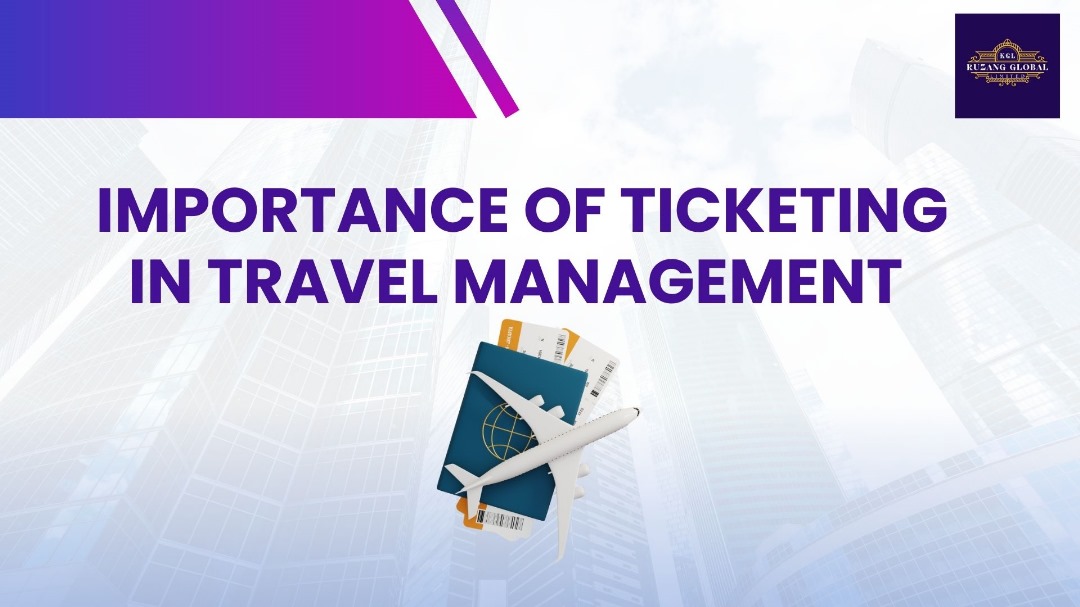
Importance of Ticketing in Travel Management:
Ticketing plays a crucial role in travel management by facilitating the sale, distribution, and documentation of travel products and services. Some key reasons why ticketing is essential in travel management include:
- Revenue Generation: Ticketing represents a significant source of revenue for airlines, travel agencies, and other travel service providers. It allows them to monetize their services by selling seats, accommodations, and other travel-related products.
- Customer Convenience: Ticketing provides travelers with a convenient and efficient way to book and confirm their travel arrangements. It streamlines the process of purchasing tickets, making reservations, and managing itineraries.
- Regulatory Compliance: Ticketing systems ensure compliance with industry regulations, including fare rules, safety standards, and documentation requirements. They help ensure that travelers have valid tickets and necessary documentation for their journeys.
- Inventory Management: Ticketing systems enable travel suppliers to manage their inventory effectively, optimizing seat availability, pricing, and distribution across various distribution channels.
- Customer Service: Ticketing systems play a crucial role in delivering excellent customer service by providing accurate information, processing bookings efficiently, and resolving issues promptly.
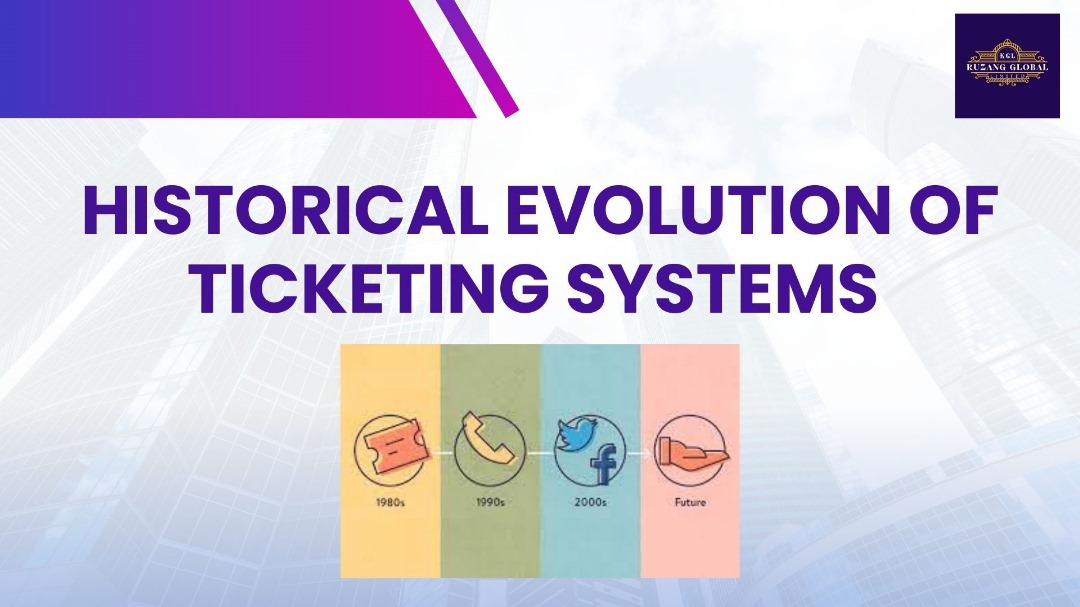
2. Historical Evolution of Ticketing Systems:
The evolution of ticketing systems parallels the development of transportation infrastructure and the growth of the travel industry. Over the years, ticketing has evolved from manual, paper-based processes to sophisticated electronic systems. Key milestones in the historical evolution of ticketing systems include:
- Manual Ticketing: In the early days of travel, tickets were handwritten or printed on paper and issued manually by travel agents or ticketing offices. This process was time-consuming and prone to errors.

- Automated Reservation Systems: The introduction of computerized reservation systems revolutionized ticketing in the 1960s and 1970s. These systems, such as the Semi-Automated Business Research Environment (SABRE), allowed travel agents to access flight schedules, make bookings, and issue tickets electronically.
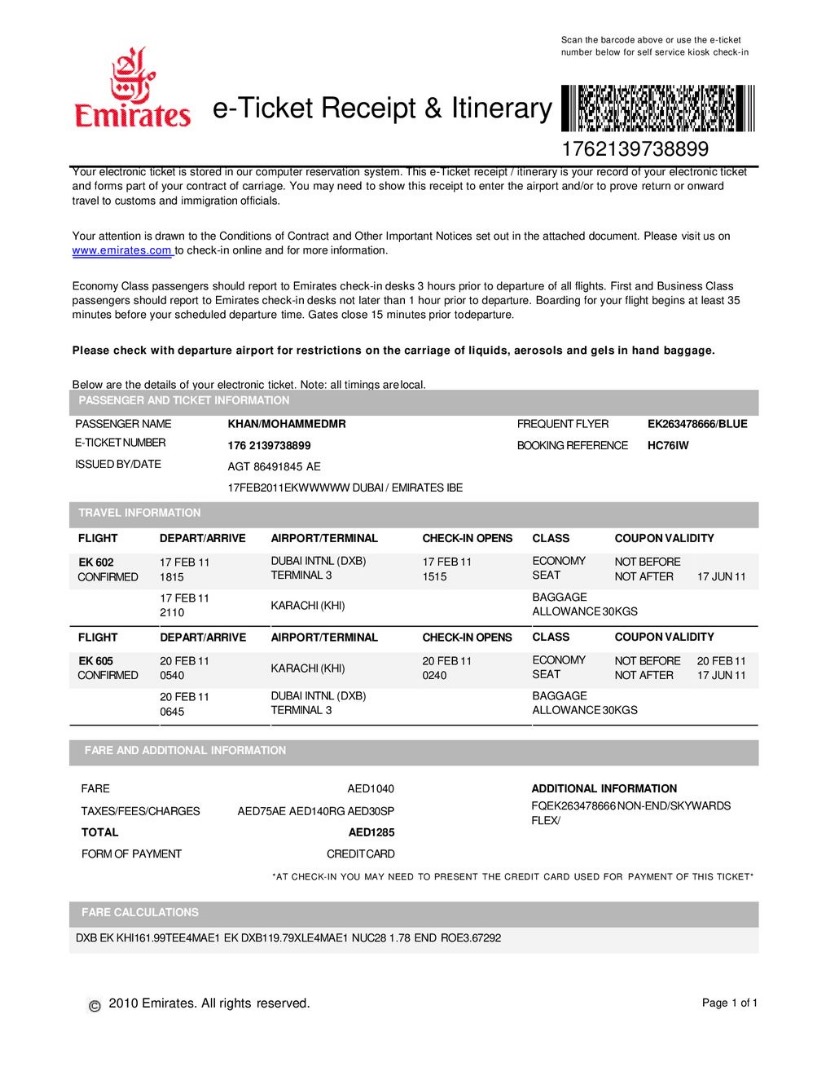
- Electronic Ticketing (E-Ticketing): The advent of e-ticketing in the late 20th century further transformed the ticketing process. E-tickets replaced traditional paper tickets with electronic records stored in reservation systems. This streamlined the ticketing process, reduced paper waste, and enhanced convenience for travelers.

- Global Distribution Systems (GDS): GDS platforms emerged as central hubs for booking and managing travel reservations. These systems, including Amadeus, Galileo, and World Span, became essential tools for travel agents, airlines, and other travel service providers.
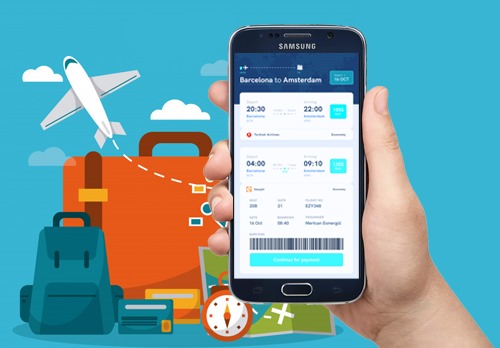
- Mobile Ticketing: With the proliferation of smartphones and mobile technology, mobile ticketing solutions have gained popularity. Travelers can now book and manage their travel arrangements using mobile apps, receiving electronic tickets and boarding passes directly on their mobile devices.
Real-life Case Studies:
- The Rise of Online Travel Agencies (OTAs): Companies like Expedia, Booking.com, and Airbnb have disrupted traditional ticketing models by offering online platforms for booking flights, accommodations, and other travel services. These platforms leverage advanced technology and data analytics to personalize the booking experience for users.
- Transition to E-Ticketing: Major airlines worldwide have transitioned from paper tickets to e-ticketing systems, streamlining operations and reducing costs. For example, in 2008, the International Air Transport Association (IATA) mandated the exclusive use of e-tickets for member airlines, leading to the widespread adoption of electronic ticketing globally.
- Impact of COVID-19 on Ticketing: The COVID-19 pandemic severely disrupted the travel industry, leading to unprecedented challenges for ticketing systems and processes. Airlines and travel agencies faced massive cancellations, refunds, and rebooking, prompting the need for flexible ticketing policies and innovative solutions to manage the crisis.
These case studies illustrate the ongoing evolution and adaptation of ticketing systems in response to changing consumer preferences, technological advancements, and external factors such as global crises. They highlight the importance of agility, innovation, and resilience in the travel and ticketing industry.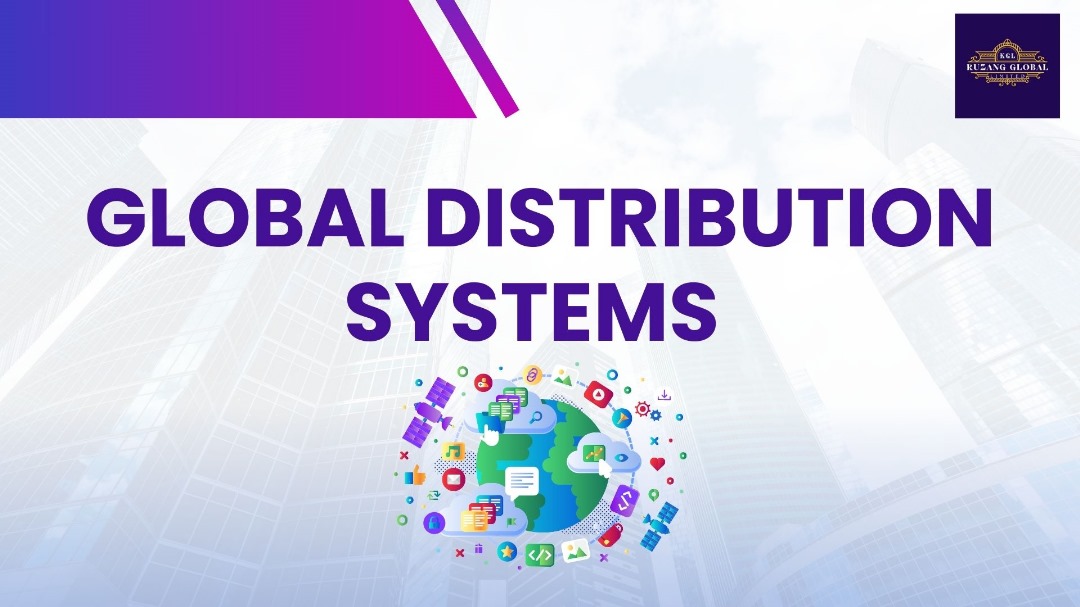
3. Global Distribution Systems (GDS)
Global Distribution Systems (GDS), play an important role in the travel and hospitality industry, serving as the backbone of reservation systems for airlines, hotels, car rental agencies, and other travel service providers. These systems consolidate and distribute information about available inventory, fares, and schedules, facilitating seamless transactions between travel agents, corporations, and end consumers.
GDS platforms emerged in the late 20th century as a response to the growing complexity of travel arrangements and the need for centralized booking systems. They revolutionized the industry by providing a single interface through which users could access and book various travel services from multiple suppliers worldwide.
Navigation and functionalities of major GDS platforms

- Amadeus: Amadeus is one of the leading GDS providers globally, offering a comprehensive suite of solutions for travel agencies, airlines, hotels, and other travel-related businesses. Its user-friendly interface and extensive database make it a preferred choice for travel professionals.
- Navigation: Amadeus is navigated through a Graphical User Interface (GUI), allowing users to search for flights, hotels, car rentals, and other services using specific criteria such as dates, destinations, and preferences. The system provides real-time updates on availability, fares, and restrictions.
- Functionalities: Amadeus offers a wide range of functionalities, including booking and ticketing for flights, hotel reservations, ground transportation arrangements, tour packages, and more. Users can access detailed information about each service, compare options, and complete transactions seamlessly.

- Sabre: Sabre is another prominent GDS provider known for its advanced technology and extensive network of travel suppliers. It offers a robust platform for travel agencies, corporations, and online booking platforms to access and distribute travel content efficiently.
- Navigation: Sabre’s interface is designed for ease of use, with intuitive search options and filters to narrow down search results. Users can customize their searches based on specific preferences, such as airline alliances, fare classes, and preferred suppliers.
- Functionalities: Sabre offers a comprehensive suite of functionalities, including flight reservations, hotel bookings, car rentals, cruise packages, and ancillary services. The platform supports complex itineraries, group bookings, and flexible fare options, catering to diverse travel needs.

- Galileo: Galileo, now part of Travelport, is widely used by travel agencies and corporate travel management companies for its efficiency and reliability. It offers a user-friendly interface and a vast inventory of travel content from airlines, hotels, car rental companies, and more.
- Navigation: Galileo’s interface features a simple layout with intuitive navigation tools for searching and booking travel services. Users can access real-time availability, pricing, and inventory data, enabling quick decision-making and seamless transactions.
- Functionalities: Galileo provides a range of functionalities, including flight reservations, hotel bookings, car rentals, rail tickets, and travel insurance. Its advanced booking engine supports multiple fare types, fare rules, and ticketing options, ensuring flexibility and convenience for users.
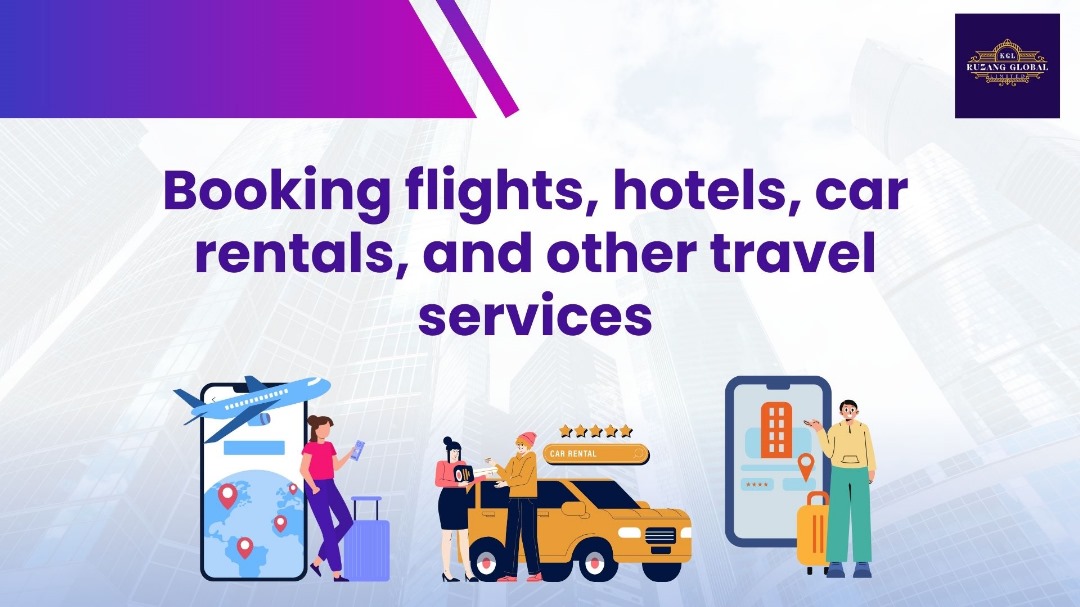
Booking flights, hotels, car rentals, and other travel services
- Flight Booking: GDS platforms allow users to search for flights based on various criteria such as dates, destinations, airlines, and fare classes. They can view available flight options, including schedules, prices, and seat availability, and make reservations directly through the system. GDS platforms also support additional services such as seat selection, meal preferences, and special requests.
Case Study:
A travel agent using Amadeus receives a request from a client for a multi-city itinerary covering multiple destinations. The agent enters the itinerary details into the system and quickly retrieves available flight options from various airlines. After comparing prices and schedules, the agent selects the most suitable flights and completes the booking process, including seat assignments and special meal requests.
- Hotel Booking: GDS platforms provide access to a wide range of hotels, resorts, and accommodation options worldwide. Users can search for hotels based on location, star rating, amenities, and price range, and book rooms in real-time. GDS platforms also offer additional features such as room upgrades, special rates, and loyalty program benefits.
Case Study:
A corporate travel manager using Sabre needs to book accommodation for a team attending a conference in a major city. The manager uses Sabre to search for hotels near the conference venue, filtering the results by preferred hotel chains and corporate rates. After comparing options and reading guest reviews, the manager selects a hotel that meets the team’s requirements and completes the reservation, ensuring seamless accommodation arrangements for the upcoming event.
- Car Rental Booking: GDS platforms enable users to search for and book car rentals from leading rental companies worldwide. Users can specify pick-up/drop-off locations, vehicle types, rental durations, and additional services such as GPS navigation or child seats. GDS platforms also offer competitive pricing and special discounts for corporate clients and frequent travelers.
Case Study:
A leisure traveler planning a road trip uses Galileo to book a rental car for their vacation. The traveler enters the pick-up location, dates, and vehicle preferences into the system and receives a list of available rental options. After comparing prices and reading rental terms, the traveler selects a car from a reputable rental company and completes the booking, receiving a confirmation voucher instantly.
In conclusion, Global Distribution Systems (GDS) are indispensable tools for travel professionals, offering seamless access to a vast inventory of travel content and streamlining the booking process for flights, hotels, car rentals, and other travel services. With user-friendly interfaces and advanced functionalities, GDS platforms empower users to make informed decisions, optimize travel arrangements, and deliver exceptional customer experiences.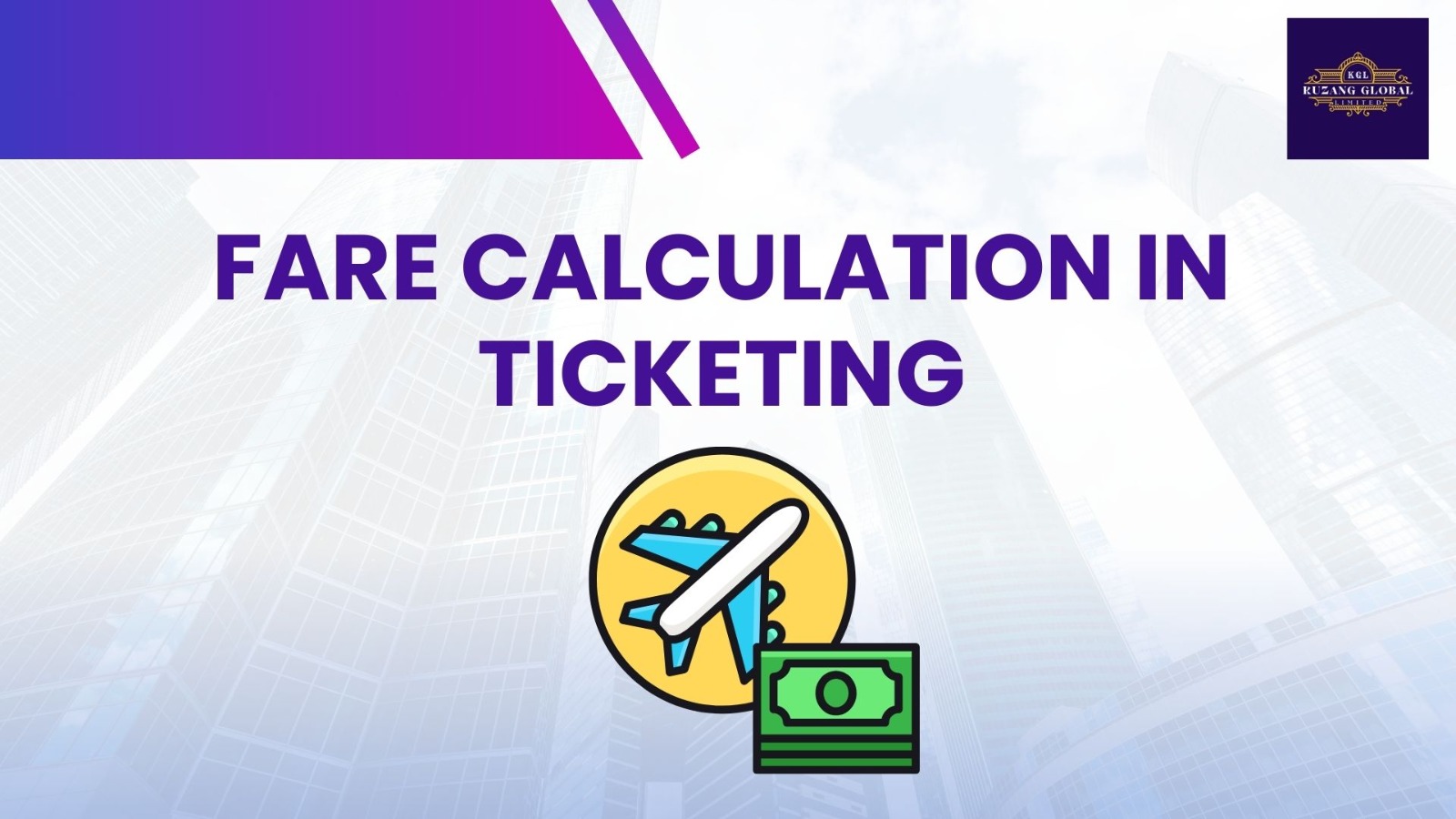
4. Fare Calculation in Ticketing: A Comprehensive Overview
Fare calculation is a critical aspect of ticketing in the travel and hospitality industry. It involves a meticulous process of determining the cost of a ticket for a passenger’s journey, considering various factors such as base fare, taxes, fees, surcharges, and currency conversions. Understanding the principles and intricacies of fare construction is essential for ticketing agents to provide accurate pricing information to customers and ensure compliance with industry regulations.
Basic Principles of Fare Construction:
Fare construction refers to the methodology used to calculate the total cost of a ticket. It involves several components, including the base fare, taxes, fees, and surcharges. The base fare is the primary cost of the ticket, representing the price of the transportation service itself. Taxes and fees are additional charges imposed by governments, airports, or other regulatory bodies, while surcharges may include fuel surcharges or airline-specific fees.
Fare rules and conditions dictate how fares are determined and applied. These rules can vary depending on factors such as the class of service, the routing of the journey, and the fare type. Understanding fare rules is essential for ticketing agents to accurately interpret pricing information and advise customers on the best fare options for their travel needs.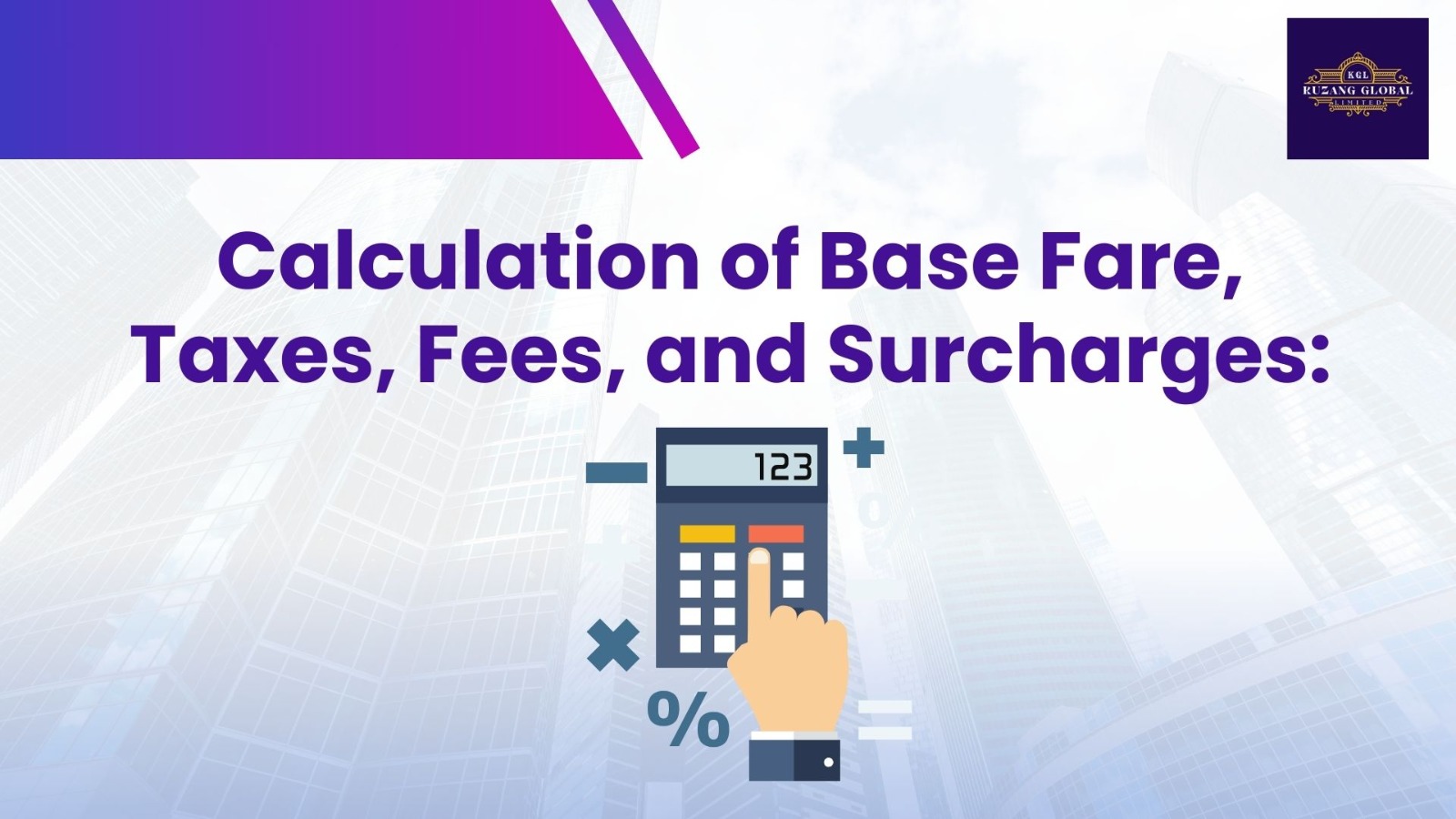
Calculation of Base Fare, Taxes, Fees, and Surcharges:
Calculating the total fare involves adding together the base fare, taxes, fees, and surcharges. The base fare is usually provided by the airline or travel provider and serves as the starting point for the calculation. Taxes and fees can include government-imposed charges such as airport taxes, security fees, and departure taxes. Surcharges may vary depending on factors such as fuel prices or special services offered by the airline.
For example, suppose a passenger is booking a flight from New York to London. The base fare for the ticket is $500. In addition to the base fare, there are taxes and fees totaling $100, and a fuel surcharge of $50. The total fare would be calculated as follows:
Total Fare = Base Fare + Taxes/Fees + Surcharges Total Fare = $500 + $100 + $50 Total Fare = $650
Ticketing agents must accurately calculate these components to provide customers with the total cost of their journey and ensure transparency in pricing.
Currency Conversion and Exchange Rate Considerations:
In international travel, currency conversion is often necessary when pricing tickets in different currencies. Ticketing agents must consider exchange rates and currency conversion fees when quoting prices to customers. Exchange rates can fluctuate daily, impacting the final cost of the ticket in the customer’s local currency.
For example, if a ticket is priced in US dollars but the customer wishes to pay in euros, the ticketing agent must convert the fare using the current exchange rate. Additionally, some credit card companies may charge a foreign transaction fee for purchases made in a different currency, which can further affect the total cost for the customer.
Real-Life Case Studies:
- Flight Booking to Paris: A customer requests a ticket from Los Angeles to Paris. The base fare for the ticket is $700, with taxes and fees totaling $150. The ticketing agent also informs the customer of a security fee of $20 and a currency conversion fee of 2% if paying in euros. The agent calculates the total fare in both US dollars and euros, considering the current exchange rate.
- Business Class Travel: A passenger wishes to upgrade to business class for a flight from Sydney to Tokyo. The base fare for economy class is $900, with an additional $500 for the business class upgrade. Taxes and fees amount to $200, and there is a premium seat selection fee of $50. The ticketing agent explains the fare rules and conditions for the upgrade and calculates the total fare accordingly.
In conclusion, fare calculation is a complex yet essential aspect of ticketing in the travel and hospitality industry. Ticketing agents must possess a thorough understanding of fare construction principles, fare rules, and currency considerations to provide accurate pricing information to customers. Real-life case studies illustrate the practical application of fare calculation techniques in different travel scenarios, highlighting the importance of attention to detail and compliance with industry standards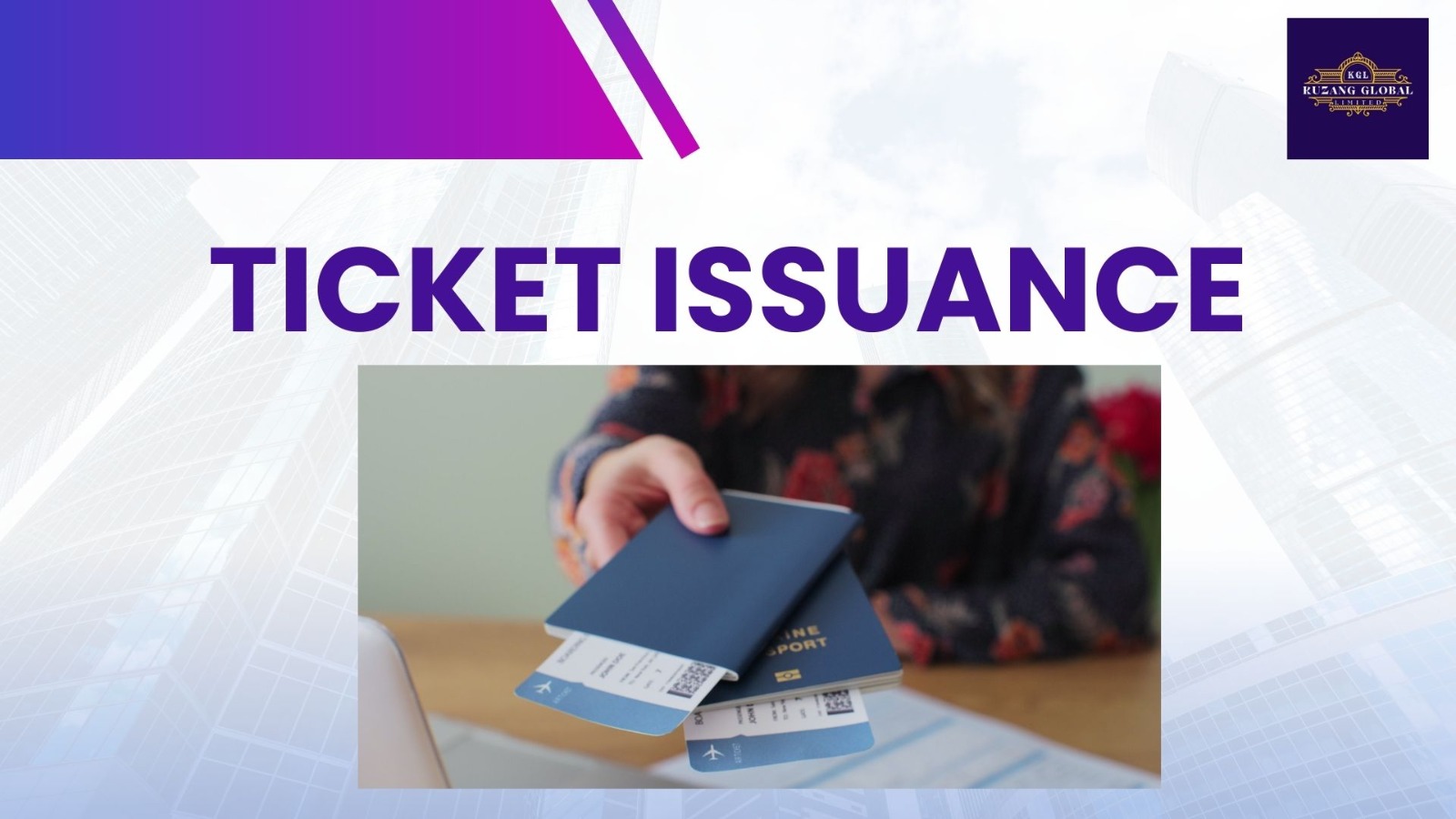
5. Ticket Issuance: A Comprehensive Guide
Ticket issuance is a critical aspect of the travel and hospitality industry, ensuring that passengers have the necessary documentation to embark on their journeys smoothly. In this extensive exploration, we’ll delve into the intricacies of ticket issuance, covering the processes involved in issuing both electronic tickets (e-tickets) and paper tickets, as well as the associated rules, regulations, endorsements, restrictions, and the handling of special requests and passenger preferences.
1. Airline Ticketing and Reservations
Introduction: In this session, we will explore the fundamental aspects of the airline industry, ticketing systems, reservation processes, fare rules, ticket types, and airline regulations. Additionally, we will discuss the handling of seat assignments, upgrades, and special requests to provide a comprehensive understanding of airline ticketing operations.
Introduction to the Airline Industry and Ticketing Systems:
- Overview of the Airline Industry:
- The airline industry is a complex network of airlines, airports, regulatory bodies, and service providers involved in the transportation of passengers and cargo via air travel.
- It plays a crucial role in global connectivity, facilitating business, tourism, and trade around the world.
- Ticketing Systems:
- Airlines utilize sophisticated computerized reservation systems (CRS) or global distribution systems (GDS) to manage flight inventory, reservations, and ticketing.
- Examples of popular GDS systems include Amadeus, Sabre, and Galileo, which serve as central platforms for booking flights, hotels, car rentals, and other travel services.
- These systems enable travel agents and airlines to access real-time information, compare fares, and make bookings efficiently.
- Reservation Processes for Domestic and International Flights:
- Domestic Flights:
- Reservation processes for domestic flights typically involve selecting departure and arrival cities, dates, and preferred flight times.
- Travelers may have the option to choose between different fare classes, seating preferences, and additional services such as meal options or baggage allowances.
- Once the reservation is confirmed, travelers receive a booking reference or confirmation number, which they can use for check-in and managing their itinerary.
- International Flights:
- Reservation processes for international flights involve additional considerations, such as passport information, visa requirements, and compliance with immigration regulations.
- Travelers must ensure their passport validity meets entry requirements for their destination country and provide accurate passenger details for immigration purposes.
- Special attention is paid to visa requirements, transit regulations, and any travel restrictions imposed by the destination country or transit points.
- Fare Rules, Ticket Types, and Airline Regulations:
- Fare Rules:
- Fare rules govern the terms and conditions associated with airline tickets, including restrictions, penalties, refund policies, and change fees.
- Travel agents and airlines must understand fare rules to advise clients on the most suitable ticket options and manage changes or cancellations effectively.
- Ticket Types:
- Airline tickets come in various types, including economy, premium economy, business class, and first class, each offering different levels of comfort, amenities, and flexibility.
- Travelers can choose the ticket type that best suits their budget, travel preferences, and itinerary requirements.
- Airline Regulations:
- Airlines are subject to regulatory requirements imposed by government agencies and aviation authorities, such as the Federal Aviation Administration (FAA) in the United States and the European Union Aviation Safety Agency (EASA) in Europe.
- These regulations cover aspects such as safety standards, aircraft maintenance, crew training, passenger rights, and environmental sustainability.
- Handling Seat Assignments, Upgrades, and Special Requests:
- Seat Assignments:
- Airlines allow passengers to select seats during the booking process, with options for window, aisle, or middle seats, as well as preferred seating locations (e.g., emergency exit rows, bulkhead seats).
- Travel agents assist clients in securing desired seat assignments, accommodating special requests such as seating preferences for families, groups, or passengers with disabilities.
- Upgrades:
- Airlines offer upgrades to higher cabin classes (e.g., business class, first class) for an additional fee or through loyalty programs.
- Travel agents facilitate upgrades by checking availability, processing payment, and coordinating changes to the reservation.
- Special Requests:
- Passengers may have special requests related to dietary restrictions, medical conditions, or mobility assistance.
- Travel agents communicate these requests to the airline, ensuring necessary arrangements are made to accommodate passengers’ needs and enhance their travel experience.
Conclusion: In conclusion, airline ticketing and reservations involve a complex set of processes and considerations, ranging from ticketing systems and fare rules to seat assignments and special requests. By understanding the fundamentals of airline operations and regulations, travel agents can effectively assist clients in booking flights, managing reservations, and ensuring a seamless travel experience.
2. Hotel Reservations and Accommodations
Introduction: In this session, we will explore the diverse types of accommodations available to travelers, the booking procedures for hotels, and the intricacies of hotel reservation systems and online booking platforms.
- Types of Accommodations:
- Hotels:
- Hotels are establishments that provide lodging, meals, and various guest services for travelers.
- They range from budget hotels to luxury properties, offering a wide range of amenities and facilities to cater to different preferences and budgets.
- Resorts:
- Resorts are vacation destinations that typically offer extensive facilities and amenities, such as swimming pools, restaurants, spas, and recreational activities.
- They are often situated in scenic locations, such as beachfronts, mountains, or tropical islands, and provide an all-inclusive experience for guests.
- Hostels:
- Hostels are budget-friendly accommodations that offer shared dormitory-style rooms or private rooms with shared facilities.
- They are popular among backpackers, budget travelers, and solo travelers seeking affordable lodging options and opportunities to socialize with fellow guests.
- Booking Procedures for Hotels:
- Room Types:
- Hotels offer various room types to accommodate different traveler preferences and group sizes, including standard rooms, suites, deluxe rooms, and specialty rooms (e.g., family rooms, honeymoon suites).
- Each room type may differ in size, amenities, and views, allowing guests to select the most suitable option for their needs.
- Rates and Amenities:
- Hotel room rates vary depending on factors such as location, seasonality, room type, and included amenities.
- Amenities may include complimentary breakfast, Wi-Fi access, fitness facilities, swimming pools, business centers, and concierge services.
- Booking Process:
- Guests can make hotel reservations through various channels, including hotel websites, online travel agencies (OTAs), travel agents, and direct phone bookings.
- The booking process typically involves selecting dates of stay, choosing room types, providing guest information, and confirming payment details.
- Understanding Hotel Reservation Systems and Online Booking Platforms:
- Hotel Reservation Systems:
- Hotel reservation systems are software platforms used by hotels to manage room inventory, reservations, pricing, and guest information.
- These systems enable hotels to streamline booking processes, monitor room availability in real-time, and optimize revenue through dynamic pricing strategies.
- Online Booking Platforms:
- Online booking platforms, such as Expedia, travsify, Booking.com, and Airbnb, allow travelers to search, compare, and book accommodations from a vast selection of hotels, resorts, and alternative lodging options.
- These platforms provide user-friendly interfaces, extensive search filters, guest reviews, and secure payment options, making it convenient for travelers to book accommodations online.
- Benefits and Challenges:
- Hotel reservation systems and online booking platforms offer numerous benefits for both hotels and travelers, including increased visibility, accessibility, and efficiency in booking processes.
- However, they also present challenges such as commission fees, price competitiveness, and dependency on third-party platforms for distribution.
Conclusion: In conclusion, hotel reservations and accommodations play a vital role in the travel industry, offering travelers a diverse range of lodging options to suit their preferences and budgets. By understanding the types of accommodations available, the booking procedures for hotels, and the functionality of hotel reservation systems and online booking platforms, travel professionals can assist clients in finding the perfect accommodations for their travel needs. Additionally, staying informed about industry trends and advancements in technology will enable travel professionals to adapt to changing consumer preferences and enhance the overall booking experience for travelers.
6. Process of Issuing Electronic Tickets (E-Tickets) and Paper Tickets:
In the modern travel landscape, electronic tickets, or e-tickets, have become the norm due to their convenience, efficiency, and environmental sustainability. However, paper tickets still have relevance in certain situations. Let’s explore both processes:
Electronic Ticket Issuance (E-Tickets):
- Electronic ticketing involves the issuance of a digital document that serves as proof of purchase and confirmation of travel arrangements.
- The process typically begins with the reservation made through a Global Distribution System (GDS) or airline reservation system. Once the booking is confirmed, an e-ticket is generated and stored electronically in the airline’s database.
- Passengers receive their e-tickets via email or through online booking platforms. The e-ticket contains essential information such as the passenger’s name, itinerary details, booking reference number, and ticket number.
- Passengers may also have the option to download and print their e-tickets for reference during check-in and boarding.
Paper Ticket Issuance:
- Paper tickets are less common in today’s digital age but are still used in certain circumstances, such as in regions with limited internet access or for specific types of travel.
- The process of issuing paper tickets involves printing the ticket on paper stock and physically delivering it to the passenger via mail or in-person pickup.
- Paper tick ets require careful handling and secure delivery to prevent loss or damage, as they serve as the primary travel document for the passenger.
2. Ticketing Rules and Regulations:
Ticketing rules and regulations govern various aspects of the ticketing process, ensuring compliance with industry standards and legal requirements. Key considerations include:
- Fare rules: Each ticket is subject to specific fare rules, which outline conditions such as eligibility for refunds, changes, and cancellations. These rules vary depending on the fare type, class of service, and airline policies.
- Ticket validity: Tickets have expiration dates and validity periods, typically ranging from a few days to a year from the date of issuance. Passengers must use the ticket within the specified timeframe to avoid forfeiture of the fare.
- Passenger identification: Ticketing regulations require accurate passenger information, including the passenger’s full name as it appears on official identification documents. Any discrepancies may result in denied boarding or additional fees for corrections.
3. Ticket Endorsements and Restrictions:
Ticket endorsements and restrictions refer to special conditions or provisions associated with a ticket. These can include:
- Routing restrictions: Some tickets may have specific routing requirements, dictating the sequence of cities or airports that the passenger must follow. Deviating from the prescribed route may incur penalties or require fare adjustments.
- Stopover allowances: Certain tickets allow passengers to make stopovers at intermediate destinations along their itinerary. The number and duration of stopovers permitted depend on the ticket type and fare rules.
- Class of service upgrades: Passengers may have the option to upgrade their seating class (e.g., from economy to business class) by paying the fare difference and any applicable upgrade fees. However, upgrades are subject to availability and fare rules.
4. Handling Special Requests and Passenger Preferences:
Providing exceptional customer service involves accommodating special requests and meeting passenger preferences to enhance their travel experience. Examples include:
- Meal preferences: Airlines offer a range of meal options to cater to passengers’ dietary requirements and preferences, including vegetarian, vegan, kosher, halal, and gluten-free meals. Passengers can request their preferred meal during the booking process or by contacting the airline directly.
- Seat preferences: Passengers often have specific seat preferences based on factors such as legroom, proximity to the aisle or window, and location within the aircraft (e.g., front, middle, or rear). Airlines may offer seat selection options at the time of booking or during online check-in, subject to availability and any associated fees.
- Special assistance: Passengers with disabilities or special needs may require additional assistance during their journey, such as wheelchair assistance, priority boarding, or accommodations for service animals. Airlines have policies and procedures in place to ensure the safe and comfortable travel of all passengers, including those with disabilities.
Real-Life Case Studies:
- E-Ticket Issuance: A passenger, John, books a flight from New York to London using an online travel agency. Upon completing the booking process, John receives an e-ticket via email, containing his itinerary details and booking reference number. He presents the e-ticket at the airport check-in counter, where it is scanned, and he receives his boarding pass, confirming his seat on the flight.
- Ticketing Rules and Regulations: Sarah purchases a non-refundable ticket for a weekend getaway. However, her plans change, and she needs to cancel her reservation. Upon reviewing the fare rules, Sarah discovers that her ticket is non-refundable but allows changes for a fee. She contacts the airline to modify her itinerary, pays the change fee, and secures a new travel date within the ticket’s validity period.
- Ticket Endorsements and Restrictions: David books a round-trip ticket from Los Angeles to Tokyo with a stopover in Seoul. However, he decides to extend his stay in Seoul for a few days before continuing to Tokyo. David checks the fare rules and discovers that his ticket allows one complimentary stopover in Seoul, provided he completes his journey within a specified timeframe. He enjoys his extended stay in Seoul before boarding his onward flight to Tokyo.
- Handling Special Requests and Passenger Preferences: Emily, a vegetarian, books a long-haul flight and requests a vegetarian meal preference during the booking process. On the day of her flight, Emily receives a specially prepared vegetarian meal that meets her dietary requirements, ensuring a comfortable and enjoyable journey.
In conclusion, ticket issuance encompasses various processes, rules, regulations, endorsements, restrictions, and considerations aimed at facilitating seamless travel experiences for passengers. By understanding and adhering to these principles, travel professionals can ensure efficient ticketing operations and deliver exceptional customer service to passengers worldwide.
Top of Form
7. Ticket Modification and Cancellation: Comprehensive Overview
Ticket modification and cancellation are crucial aspects of the travel industry, ensuring flexibility for passengers while adhering to the policies set forth by airlines and other travel service providers. This comprehensive discussion will delve into the procedures for modifying itineraries, refund policies, exchanging tickets, and managing schedule changes and flight disruptions, along with real-life case studies to illustrate these concepts in practice.
1. Procedures for Modifying Itinerary, Date, or Passenger Details:
Modifying an itinerary, date, or passenger details often involves navigating through airline policies, fare rules, and reservation systems. Passengers may need to alter their travel plans due to various reasons, such as changes in personal schedules, unexpected events, or evolving travel restrictions. The procedures for modifications typically vary based on the ticket type, fare class, and the specific terms and conditions outlined by the airline.
Real-life Case Study: Sarah booked a flight to attend a conference but later realized that she needed to extend her stay by a day due to an additional meeting. She contacted the airline’s customer service and requested to modify her return date. After confirming the availability and applicable fare difference, the airline reissued her ticket with the updated itinerary.
2. Refund Policies and Cancellation Fees:
Refund policies and cancellation fees are determined by airlines and are often governed by fare rules and regulations. These policies outline the conditions under which passengers can receive a refund for their tickets and any associated fees for canceling reservations. Refundability and fees may vary depending on factors such as ticket type, fare class, time of cancellation, and the airline’s specific policies.
Real-life Case Study:
John purchased a non-refundable ticket for a vacation but had to cancel his trip due to a sudden illness. He reviewed the airline’s refund policy and learned that while his ticket was non-refundable, he could potentially receive a refund for taxes and fees. Despite the cancellation fee, John proceeded to cancel his reservation and submitted a refund request, providing necessary documentation such as a medical certificate.
3. Exchanging Tickets and Reissuing Documents:
Exchanging tickets involves replacing an existing reservation with a new one, often to accommodate changes in travel plans. Reissuing documents, such as e-tickets or paper tickets, is necessary when modifications are made to the original booking. The process may involve recalculating fares, adjusting fees, and issuing updated travel documents to reflect the changes.
Real-life Case Study:
Emily booked a flight to visit her family but later realized she had selected the wrong departure airport. She contacted the airline’s customer service and requested to exchange her ticket for a flight departing from the correct airport. The airline facilitated the exchange by reissuing her ticket with the updated departure airport and collecting any applicable fare difference.
4. Managing Schedule Changes and Flight Disruptions:
Schedule changes and flight disruptions are common occurrences in the travel industry, often caused by factors such as weather conditions, technical issues, or operational adjustments. Airlines have procedures in place to manage these situations, including rebooking passengers on alternative flights, providing accommodations or compensation as per regulations, and communicating updates to affected travelers.
Real-life Case Study:
David arrived at the airport for his flight only to discover that it had been canceled due to inclement weather. He approached the airline’s service desk, where staff informed him of the cancellation and offered to rebook him on the next available flight or provide a refund as per regulations. David opted for a rebooking and was accommodated on a later flight to his destination.
In conclusion, ticket modification and cancellation processes are integral components of the travel industry, requiring careful navigation of policies, procedures, and customer service considerations. Real-life case studies provide valuable insights into the practical application of these concepts, highlighting the importance of flexibility, communication, and adherence to regulations in managing passenger reservations effectively
DAY 2
CUSTOMER SERVICE IN TICKETING
Customer service in ticketing is a critical aspect of the travel and hospitality industry, as it directly impacts the overall experience of passengers. Effective communication skills, along with the ability to handle inquiries, complaints, and feedback, are essential for ensuring customer satisfaction and loyalty. Moreover, providing assistance to passengers with special needs and effectively resolving conflicts and difficult situations requires empathy, patience, and problem-solving abilities.
Communication Skills for Effective Customer Interaction:
8. Customer Service and Communication Skills Top of Form
Communication is the cornerstone of customer service in ticketing. Agents must possess excellent verbal and written communication skills to effectively interact with passengers. This includes being clear, concise, and courteous in all interactions, whether over the phone, via email, or in person. Active listening is also crucial, as it helps agents understand passengers’ needs and concerns better. By empathizing with passengers and using language that is easy to understand, agents can build rapport and trust, enhancing the overall customer experience.
Excellent customer service is paramount in the role of a ticketing agent as they are often the first point of contact for travelers and play a crucial role in shaping the overall customer experience. Here’s why it’s important, along with tips and strategies for effective communication:
Importance of Excellent Customer Service:
- First Impression: As the initial point of contact, ticketing agents represent the airline or travel agency. Providing exceptional service leaves a positive first impression on customers.
- Customer Satisfaction: Good customer service ensures that customers feel valued and satisfied with their experience, leading to repeat business and positive word-of-mouth referrals.
- Problem Resolution: Effective communication skills enable ticketing agents to address customer concerns promptly and resolve issues efficiently, minimizing disruptions to travel plans.
- Brand Reputation: Positive interactions with ticketing agents contribute to a positive brand reputation, enhancing the airline or agency’s credibility and trustworthiness.
- Upselling Opportunities: Through attentive service and personalized recommendations, ticketing agents can identify upselling opportunities and promote additional services or upgrades.
Tips and Strategies for Effective Communication:
- Active Listening: Listen attentively to customers’ inquiries and concerns, demonstrating empathy and understanding.
- Clear Communication: Use clear and concise language to convey information and instructions, avoiding jargon or technical terms that may confuse customers.
- Empathy and Patience: Show empathy towards customers’ frustrations or challenges, and remain patient, especially during peak travel times or when dealing with difficult situations.
- Personalization: Address customers by name and tailor responses to their specific needs or preferences, creating a personalized experience.
- Timely Responses: Respond promptly to inquiries via phone, email, or in-person, ensuring that customers receive timely assistance and support.
- Problem-Solving Skills: Develop problem-solving skills to quickly assess and address customer issues, offering viable solutions or alternatives.
- Product Knowledge: Stay informed about airline policies, fare rules, and available services to provide accurate information and assistance to customers.
- Professional Demeanor: Maintain a professional demeanor at all times, remaining courteous, respectful, and composed, even in challenging situations.
- Follow-Up: After resolving an issue or assisting a customer, follow up to ensure their satisfaction and offer further assistance if needed.
- Continuous Improvement: Seek feedback from customers and colleagues to identify areas for improvement and enhance customer service skills continually.
By prioritizing excellent customer service and employing effective communication strategies, ticketing agents can foster positive relationships with customers, enhance the overall travel experience, and contribute to the success of the airline or travel agency.
Case Study Top of Form
Case Study: Resolving a Customer Issue
Scenario: Emily works as a ticketing agent for a major airline. One busy afternoon, she receives a call from a distressed customer named John, who has just discovered that he booked his flight for the wrong date. John is scheduled to attend an important business meeting in another city, and changing his flight is imperative.
Challenges:
- John is upset and frustrated, fearing that he might miss his meeting.
- The flight John originally booked is fully booked for the desired date of travel.
- John’s original ticket is non-refundable, and he is concerned about the additional costs associated with changing his flight.
Strategies for Resolution:
- Active Listening: Emily begins by actively listening to John’s concerns without interrupting him. She empathizes with his situation and reassures him that she will do everything possible to assist him.
- Clarifying Information: Emily asks John for his booking details and carefully reviews his itinerary to understand the options available for changing his flight.
- Problem-Solving: Despite the flight being fully booked, Emily checks for alternative flights and identifies a few options that could accommodate John’s schedule. She explains the available alternatives to John, including any additional costs or differences in itinerary.
- Offering Solutions: Emily presents John with several solutions, such as changing to a different flight on the same day or rearranging his itinerary to depart earlier or later. She provides clear explanations of each option, including any associated fees or changes to the travel plan.
- Managing Expectations: Emily manages John’s expectations by being transparent about the limitations and possibilities for changing his flight. She ensures that John understands the process and timelines involved in making the necessary changes.
- Going the Extra Mile: Understanding the urgency of John’s situation, Emily goes the extra mile to expedite the process of changing his flight, contacting her supervisor and other departments if needed to find a solution.
- Follow-Up: After successfully changing John’s flight, Emily follows up with him to confirm the new itinerary, ensure his satisfaction with the resolution, and offer any additional assistance he may need.
Outcome: Thanks to Emily’s exemplary customer service and effective communication skills, John’s issue is resolved satisfactorily. He appreciates Emily’s dedication and professionalism in assisting him during a stressful situation. John successfully attends his business meeting on time, and his trust in the airline’s customer service is strengthened.
Conclusion: This case study highlights how excellent customer service and effective communication skills are essential for ticketing agents to address customer issues promptly, find solutions to challenging situations, and ensure customer satisfaction. By listening attentively, offering solutions, and going above and beyond to assist customers, ticketing agents can uphold the airline’s reputation and foster positive relationships with passengers.
Handling Inquiries, Complaints, and Feedback:
Inquiries, complaints, and feedback are inevitable in the ticketing process. How agents handle these interactions can significantly impact passenger satisfaction. Agents should respond promptly to inquiries, providing accurate and relevant information to address passengers’ concerns. When handling complaints, agents should remain calm and empathetic, acknowledging the passenger’s feelings and working towards a resolution. Additionally, feedback should be welcomed and used constructively to identify areas for improvement and enhance service quality.
Real-life Case Study:
An airline passenger, Mr. Smith, contacts the customer service department to inquire about a change in his flight schedule due to unforeseen circumstances. The agent, Sarah, listens attentively to Mr. Smith’s concerns and quickly accesses his booking details. She explains the available options for rescheduling his flight, including any associated fees or restrictions. Despite the inconvenience, Sarah remains empathetic and apologizes for the inconvenience caused. She assists Mr. Smith in selecting a new flight that suits his needs and ensures a smooth transition of his booking. As a result, Mr. Smith expresses gratitude for the excellent service and is satisfied with the outcome.
Providing Assistance to Passengers with Special Needs:
Passengers with special needs, such as disabilities or medical conditions, require additional assistance and support during their travel. Ticketing agents should be trained to accommodate these passengers’ unique requirements sensitively and efficiently. This may involve providing wheelchair assistance, arranging for special meals, or accommodating service animals. Agents should proactively inquire about any special needs during the booking process and ensure that appropriate arrangements are made to meet the passengers’ needs.
Resolving Conflicts and Managing Difficult Situations:
Conflicts and difficult situations can arise unexpectedly in the ticketing process, often due to factors beyond the passenger’s control, such as flight delays or cancellations. In such situations, agents must remain calm, professional, and solution-oriented. It is essential to listen to the passenger’s concerns, acknowledge their frustration, and work collaboratively to find a resolution. Agents should be empowered to make decisions within their authority to resolve issues promptly and effectively, ensuring that passengers feel valued and supported throughout the process.
Real-life Case Study:
During check-in, a passenger, Ms. Johnson, discovers that her seat assignment has been changed without prior notification. Upset and confused, she approaches the ticketing counter seeking assistance. The agent, John, apologizes for the inconvenience and quickly investigates the issue. He discovers that the seat change was due to a last-minute aircraft swap and assures Ms. Johnson that he will find a suitable alternative. John offers her a choice of available seats and ensures that she is comfortably accommodated. He also provides Ms. Johnson with a complimentary upgrade as a gesture of goodwill, which resolves the issue satisfactorily.
In conclusion, effective customer service in ticketing requires a combination of strong communication skills, empathy, and problem-solving abilities. By actively listening to passengers, addressing their inquiries and complaints promptly, providing assistance to those with special needs, and skillfully resolving conflicts and difficult situations, ticketing agents can enhance the overall passenger experience and contribute to customer satisfaction and loyalty.
Handling Special Situations:
Ticketing agents often encounter various special situations, such as flight cancellations, overbooking, or rebooking requests. Here are common scenarios and best practices for handling them effectively:
- Flight Cancellations:
Scenario: A flight is canceled due to inclement weather, mechanical issues, or other unforeseen circumstances.
Best Practices:
- Notify Passengers Promptly: Inform affected passengers about the cancellation as soon as possible via email, phone, or text message.
- Apologize and Explain: Apologize for the inconvenience and provide a clear explanation for the cancellation, including any alternative arrangements.
- Offer Options: Present passengers with alternative flights, rebooking options, or refunds, depending on their preferences and circumstances.
- Assist with Rebooking: Assist passengers in finding alternative flights or rerouting options, considering their schedules and preferences.
- Provide Assistance: Offer assistance with accommodations, meals, transportation, and other necessities for passengers stranded due to the cancellation.
- Follow-Up: Follow up with affected passengers to ensure their satisfaction with the resolution and offer any further assistance needed.
- Overbooking:
Scenario: The airline has sold more tickets than available seats on a flight, leading to potential passenger displacement.
Best Practices:
- Prevention: Implement measures to minimize overbooking, such as accurate forecasting and management of seat inventory.
- Compensation: Offer compensation, such as travel vouchers, upgrades, or cash, to passengers willing to voluntarily give up their seats.
- Priority Handling: Prioritize handling overbooking situations promptly and professionally to minimize disruptions for affected passengers.
- Alternative Arrangements: Assist affected passengers in finding alternative flights or rebooking options to reach their destination as soon as possible.
- Communication: Maintain open and transparent communication with affected passengers, explaining the situation and available options clearly.
- Compliance: Ensure compliance with regulations and policies regarding passenger rights and compensation in overbooking situations.
- Rebooking Requests:
Scenario: A passenger requests to change their flight due to personal reasons, schedule changes, or unforeseen circumstances.
Best Practices:
- Flexibility: Be flexible and accommodating when handling rebooking requests, considering passengers’ needs and circumstances.
- Fee Waivers: Consider waiving change fees or penalties for rebooking requests made due to valid reasons, such as medical emergencies or flight cancellations.
- Alternative Options: Offer passengers alternative flight options, dates, or routes that best suit their preferences and schedules.
- Communication: Communicate clearly with passengers about the process, fees, and any restrictions associated with rebooking their flight.
- Prompt Action: Process rebooking requests promptly and efficiently to minimize inconvenience for passengers and ensure timely confirmation of new travel arrangements.
- Follow-Up: Follow up with passengers after rebooking to confirm the changes, provide updated itineraries, and ensure their satisfaction with the resolution.
By implementing these best practices, ticketing agents can effectively manage special situations such as flight cancellations, overbooking, or rebooking requests, while prioritizing customer satisfaction and minimizing disruptions to passengers’ travel plans. Open communication, flexibility, and proactive assistance are key to handling these scenarios professionally and ensuring a positive customer experience.
Case Study: Managing Flight Cancellation
Scenario: Sarah works as a ticketing agent for a major airline. One morning, she receives notification that a flight from New York to Chicago has been canceled due to severe weather conditions. Several passengers are affected by the cancellation, and Sarah must assist them in making alternative arrangements.
Challenges:
- Multiple Passengers: Several passengers are impacted by the flight cancellation, each with different preferences and schedules.
- Limited Availability: Alternative flights to Chicago may be limited due to high demand or fully booked flights.
- Time Sensitivity: Passengers may have urgent travel plans or commitments in Chicago that require prompt resolution.
Strategies for Resolution:
- Proactive Notification: Sarah promptly notifies affected passengers via email and phone about the flight cancellation, providing clear instructions on how to proceed.
- Assessment of Passenger Needs: Sarah assesses each passenger’s situation individually, taking into account their preferences, urgency of travel, and flexibility.
- Offering Alternatives: Sarah presents passengers with alternative flight options to Chicago, considering available seats, departure times, and airline preferences.
- Flexible Rebooking: Sarah offers flexible rebooking options, such as allowing passengers to choose alternative dates or routes without additional fees or penalties.
- Assistance with Accommodations: For passengers unable to secure immediate alternative flights, Sarah assists in arranging accommodations, meals, and transportation as needed.
- Clear Communication: Sarah communicates openly and transparently with passengers, providing updates on flight availability, rebooking procedures, and any compensation or amenities offered.
- Empathy and Support: Sarah shows empathy and understanding towards passengers’ frustrations and concerns, reassuring them that she is committed to finding a suitable resolution.
- Follow-Up: After assisting passengers with rebooking or alternative arrangements, Sarah follows up to confirm the changes, provide updated itineraries, and ensure their satisfaction with the resolution.
Outcome: Thanks to Sarah’s proactive communication and diligent assistance, all affected passengers are successfully rebooked on alternative flights or accommodated with suitable arrangements. Passengers appreciate Sarah’s professionalism, empathy, and dedication to resolving the situation promptly and ensuring their travel needs are met despite the unexpected cancellation.
Conclusion: This case study demonstrates how ticketing agents like Sarah can effectively manage flight cancellations by prioritizing clear communication, flexible rebooking options, and personalized assistance tailored to passengers’ needs. By demonstrating empathy, professionalism, and proactive problem-solving skills, ticketing agents can mitigate the impact of disruptions and uphold customer satisfaction even in challenging situations.
9. Industry Regulations and Compliance in Ticketing
In the dynamic landscape of the travel and hospitality industry, adherence to regulations and compliance standards is paramount to ensure the smooth operation of ticketing processes and the protection of passenger rights. This section will delve extensively into various regulatory bodies, aviation laws and regulations, ethical considerations, and data protection and privacy laws governing the ticketing domain.
Overview of Regulatory Bodies
Regulatory bodies play a crucial role in overseeing and governing various aspects of ticketing operations. Two prominent regulatory bodies in the airline industry are the International Air Transport Association (IATA) and the Department of Transportation (DOT).
- International Air Transport Association (IATA): IATA is a global trade association representing airlines worldwide. It sets standards and provides services for the aviation industry, including ticketing and distribution standards, safety regulations, and training programs. IATA’s Billing and Settlement Plan (BSP) facilitates the settlement of airline ticket sales between travel agents and airlines, ensuring transparency and financial security in transactions.
- Department of Transportation (DOT): In the United States, the DOT regulates various aspects of the aviation industry to ensure consumer protection, safety, and fair competition. DOT regulations cover areas such as airline advertising practices, passenger rights, accessibility for individuals with disabilities, and consumer complaints handling.
- The Nigerian Civil Aviation Authority (NCAA)
NCAA is the regulatory body responsible for overseeing civil aviation in Nigeria. It ensures compliance with national and international aviation safety standards, regulations, and policies. The NCAA regulates various aspects of aviation, including airworthiness certification, airline operations, airport standards, and personnel licensing. It plays a crucial role in promoting safety, security, and efficiency within Nigeria’s aviation industry.
Compliance with Aviation Laws and Regulations
Ticketing professionals must adhere to a plethora of aviation laws and regulations to ensure legal compliance and maintain industry standards. Some key areas of compliance include:
- Ticketing Practices: Ticket issuance, modification, and cancellation must comply with established fare rules, terms, and conditions. Any deviations or discrepancies may lead to legal ramifications and financial penalties.
- Fair Trading Practices: Adherence to fair trading practices is essential to prevent deceptive advertising, price discrimination, or unfair competition. Transparency in fare display, pricing, and availability is crucial to maintaining consumer trust and satisfaction.
- Passenger Rights: Airlines and ticketing agencies must comply with passenger rights regulations, which outline passengers’ entitlements in cases of flight delays, cancellations, denied boarding, or mishandled baggage. Understanding and communicating these rights to customers is vital to ensure a positive passenger experience.
10. Ethical/Legal Considerations in Ticketing Practices
Ethical considerations play a significant role in shaping ticketing practices and customer interactions. Ticketing professionals must uphold ethical standards to maintain integrity and trust within the industry. Some ethical considerations include:
- Honesty and Transparency: Providing accurate information to customers regarding fares, terms, and conditions fosters transparency and builds credibility. Misrepresentation or concealment of information can erode trust and damage the reputation of ticketing agencies or airlines.
- Conflict of Interest: Ticketing professionals should avoid conflicts of interest that may compromise their impartiality or integrity. Disclosure of any potential conflicts, such as incentives or commissions from suppliers, is necessary to maintain transparency and trust with customers.
- Customer Confidentiality: Respecting customer confidentiality and privacy is paramount in ticketing operations. Handling sensitive personal information with discretion and complying with data protection laws safeguard customers’ privacy rights and mitigate the risk of data breaches or unauthorized disclosures.
11. Data Protection and Privacy Laws
In an era of digitalization and online transactions, protecting customer data and privacy is of utmost importance. Ticketing professionals must adhere to data protection laws and implement robust security measures to safeguard customer information. Examples of data protection and privacy laws include:
- General Data Protection Regulation (GDPR): Enforced by the European Union (EU), GDPR regulates the processing and protection of personal data of EU residents. Compliance with GDPR entails obtaining explicit consent for data collection, ensuring data security, and providing individuals with rights to access, rectify, or erase their personal information.
- California Consumer Privacy Act (CCPA): CCPA grants California residents certain rights regarding their personal information held by businesses, including the right to know what data is collected, the right to opt-out of data sales, and the right to request deletion of personal information. Businesses subject to CCPA must comply with its requirements to protect consumer privacy rights.
Legal Considerations:
- Data Protection Laws: Ticketing agents must comply with data protection regulations such as the General Data Protection Regulation (GDPR) in the European Union or the California Consumer Privacy Act (CCPA) in the United States. This includes obtaining consent for data collection, ensuring data security, and providing transparency about how customer data is used.
- Consumer Protection Laws: Ticketing agents must adhere to consumer protection laws that govern fair business practices, including regulations related to pricing transparency, ticket refunds, cancellation policies, and disclosure of terms and conditions.
- Anti-Discrimination Laws: Ticketing agents must comply with anti-discrimination laws that prohibit discrimination based on factors such as race, gender, age, disability, or nationality when selling tickets or providing customer service.
- Contractual Obligations: Ticketing agents must uphold contractual agreements with customers, airlines, and other stakeholders, including terms related to ticket sales, refunds, and service provision.
Ethical Considerations:
- Customer Privacy: Ticketing agents must prioritize the protection of customer privacy and confidential information. This includes safeguarding personal data, such as names, contact details, payment information, and travel itineraries, from unauthorized access or disclosure.
- Transparency: Ticketing agents should provide clear and accurate information to customers regarding ticket prices, fees, restrictions, and terms of service. Transparency builds trust and helps customers make informed decisions.
- Fair Treatment: Ticketing agents should treat all customers fairly and impartially, regardless of their background, preferences, or purchasing power. This includes providing equal access to available tickets and services.
- Professional Conduct: Ticketing agents should maintain professional conduct at all times, demonstrating honesty, integrity, and respect in their interactions with customers, colleagues, and partners.
- Conflict of Interest: Ticketing agents should avoid conflicts of interest that may compromise their impartiality or integrity, such as favoritism towards certain airlines or suppliers.
Importance of Upholding Ethical Standards:
- Customer Trust: Upholding ethical standards and protecting customer privacy are essential for building and maintaining trust with customers. Trust is crucial for long-term relationships and customer loyalty.
- Legal Compliance: Adhering to legal and ethical standards helps ticketing agents avoid legal repercussions, fines, or penalties for non-compliance with regulations.
- Reputation Management: Ethical conduct contributes to a positive reputation for ticketing agents and the industry as a whole. A good reputation attracts customers and enhances competitiveness.
- Customer Satisfaction: By prioritizing ethical considerations, ticketing agents can ensure a positive customer experience, leading to increased satisfaction, repeat business, and positive word-of-mouth recommendations.
In summary, legal and ethical considerations are fundamental in the ticketing industry, guiding practices related to data protection, consumer rights, fairness, and integrity. Upholding ethical standards not only ensures compliance with regulations but also fosters customer trust, satisfaction, and loyalty.Top of Form
Case Study: Ensuring Data Privacy and Ethical Conduct
Scenario: Dorcas works as a ticketing agent for a travel agency that specializes in booking flights for business travelers. One day, she receives a request from a corporate client, in Kuzang global Corporation, to book several flights for their employees attending a conference in another city.
Challenges:
- Data Privacy: Dorcas must ensure that she handles the personal information of Kuzang global Corporation’s employees in compliance with data protection laws, such as the GDPR.
- Fair Treatment: Dorcas needs to ensure fair treatment of all Kuzang global limited’s employees, providing them with equal access to available flights and services.
- Transparency: Dorcas must provide transparent information to Kuzang Global Corporation about ticket prices, fees, and any restrictions or terms of service.
Strategies for Resolution:
- Data Protection Compliance:
- Dorcas ensures that she obtains explicit consent from Kuzang globak limited for processing their employees’ personal data for flight bookings.
- She securely stores and handles the personal information of Kuzang global Corporation’s employees, adhering to GDPR requirements for data security and privacy.
- Dorcas only shares the necessary information with airlines and other third parties involved in the booking process, following data minimization principles.
- Fair Treatment:
- Dorcas ensures that she provides Kuzang Global Corporation’s employees with equal access to available flights and services, without discrimination based on factors such as gender, age, or nationality.
- She offers multiple flight options and considers the preferences and schedules of Kuzang global Corporation’s employees when making bookings, ensuring fairness and impartiality.
- Transparency:
- Dorcas provides Kuzang global Corporation with clear and accurate information about ticket prices, fees, and any applicable terms and conditions.
- She explains the booking process to Kuzang global Corporation, including the steps involved, payment methods accepted, and any restrictions or requirements for booking flights.
Outcome: Thanks to Sarah’s diligent efforts to ensure data privacy and ethical conduct, Kuzang global Corporation’s employees’ flight bookings are handled professionally and transparently. Kuzang global Corporation appreciates Dorcas’s commitment to upholding legal and ethical standards, and they continue to rely on her and the travel agency for their business travel needs.
Conclusion: This case study demonstrates the importance of legal and ethical considerations in the ticketing industry, particularly regarding data privacy, fair treatment, and transparency. By prioritizing compliance with regulations and ethical conduct, ticketing agents like Sarah can build trust with clients, protect customer privacy, and maintain a positive reputation for themselves and their organizations.
12. E-ticketing and Electronic Documentation: Advantages, Challenges, and Real-Life Case Studies
Advantages of E-ticketing:
E-ticketing, also known as electronic ticketing, has revolutionized the travel industry by replacing traditional paper tickets with electronic records stored in computer systems. The transition from paper to electronic tickets offers numerous advantages for both travelers and service providers:
Convenience:
One of the primary advantages of e-ticketing is its convenience. Travelers no longer need to carry physical tickets; instead, their booking details are stored electronically in reservation systems. This eliminates the risk of losing tickets and provides ease of access, as travelers can simply present their identification at check-in to retrieve their booking.
Time-saving:
E-ticketing streamlines the booking process, allowing travelers to make reservations and receive confirmation instantly through online platforms or travel agencies. This saves time compared to the manual processing required for paper tickets, reducing wait times at ticket counters and improving overall efficiency.
Flexibility:
Electronic tickets offer greater flexibility for travelers to manage their bookings. They can easily modify travel dates, routes, or passenger information online without the need for physical ticket exchanges. This flexibility is particularly beneficial in situations where travel plans change unexpectedly.
Cost-effectiveness:
E-ticketing helps reduce operational costs for airlines and other travel providers by eliminating the need for paper ticket production, distribution, and storage. This cost-saving measure can lead to lower ticket prices for consumers or allow airlines to invest in improving services and amenities.
Environmentally friendly:
E-ticketing contributes to environmental sustainability by reducing paper consumption and waste associated with traditional ticketing methods. By embracing electronic documentation, the travel industry can minimize its carbon footprint and promote eco-friendly practices.
Challenges of E-ticketing:
While e-ticketing offers numerous benefits, it also presents certain challenges that need to be addressed to ensure a seamless and secure ticketing experience:
Technological barriers:
Not all travelers may be familiar with digital platforms or comfortable using online booking systems. Elderly passengers or those with limited access to technology may face challenges navigating e-ticketing processes, necessitating additional support and assistance.
Cybersecurity risks:
The shift towards electronic transactions exposes travelers to cybersecurity threats such as data breaches, identity theft, and fraudulent activities. Malicious actors may attempt to intercept sensitive information during online transactions or compromise reservation systems, highlighting the importance of robust cybersecurity measures.
Dependency on Internet connectivity:
E-ticketing relies heavily on internet connectivity for booking, modification, and check-in processes. Travelers may encounter difficulties accessing their electronic tickets or making changes to their reservations in areas with poor internet coverage or during technical outages.
Compatibility issues:
Different airlines and reservation systems may use proprietary formats or platforms for e-ticketing, leading to compatibility issues when transferring bookings between carriers or integrating with third-party services. Ensuring interoperability and standardization across systems is crucial for seamless electronic ticketing experiences.
Legal and regulatory considerations:
E-ticketing must comply with various legal and regulatory requirements, including data protection laws, consumer rights regulations, and industry standards. Failure to adhere to these guidelines can result in legal repercussions and damage to the reputation of travel providers.
Real-Life Case Studies:
Southwest Airlines: Rapid Adoption of E-ticketing
Southwest Airlines, a leading low-cost carrier in the United States, embraced e-ticketing early on and played a pivotal role in popularizing electronic ticketing among travelers. By transitioning to a fully electronic ticketing system in 2003, Southwest streamlined its operations, reduced costs, and improved customer satisfaction. The airline’s success with e-ticketing served as a catalyst for other carriers to follow suit, leading to widespread adoption across the industry.
IATA’s Electronic Ticketing Initiative
The International Air Transport Association (IATA) launched an electronic ticketing initiative to promote the global adoption of e-ticketing standards and practices. Through collaborative efforts with airlines, travel agencies, and technology providers, IATA developed standardized protocols and specifications for electronic ticket issuance, distribution, and management. This initiative facilitated interoperability between different reservation systems and enhanced the reliability and security of e-ticketing transactions worldwide.
Mobile Ticketing Innovations:
With the proliferation of smartphones and mobile technology, airlines and travel companies have introduced innovative mobile ticketing solutions to enhance the travel experience. For example, airlines like Delta Air Lines and United Airlines offer mobile apps that allow passengers to store their electronic boarding passes directly on their smartphones. This eliminates the need for printed boarding passes and provides travelers with seamless access to their travel information throughout their journey.
Blockchain-Based Ticketing Platforms:
Blockchain technology has the potential to revolutionize ticketing systems by providing secure, transparent, and tamper-proof transaction records. Several startups and companies are exploring the use of blockchain-based ticketing platforms to combat counterfeit tickets, streamline ticket distribution, and improve transparency in the ticketing process. One such example is Aventus, a blockchain-based ticketing protocol that aims to eliminate ticket fraud and scalping in the events industry by leveraging decentralized ledger technology.
In conclusion, e-ticketing and electronic documentation offer significant advantages for the travel industry, including convenience, cost-effectiveness, and environmental sustainability. However, addressing challenges such as cybersecurity risks, technological barriers, and regulatory compliance is essential to ensure a seamless and secure ticketing experience for travelers. Real-life case studies demonstrate the transformative impact of e-ticketing initiatives and innovations in enhancing operational efficiency and customer satisfaction within the travel industry.
13. Case Study: Analysis of Real-World Ticketing Scenarios
Scenario:
A major airline, “Skylink Airways,” experiences a surge in demand for holiday travel during the peak season. However, due to unforeseen circumstances, several flights are overbooked, leading to a complex ticketing situation.
Analysis: The ticketing team at Skylink Airways faces the challenge of managing overbooked flights while ensuring customer satisfaction and compliance with regulatory requirements. Using theoretical knowledge of ticketing systems and industry regulations, they approach the situation methodically:
- Identification of Overbooked Flights:
The ticketing team utilizes the reservation system to identify flights that are overbooked based on the number of confirmed reservations and available seats. They prioritize flights with the highest overbooking rates for immediate attention.
- Communication with Passengers:
The team communicates with affected passengers via email, phone calls, and text messages, informing them of the situation and offering alternatives such as rebooking on later flights, compensation, or voluntary denied boarding.
- Problem-Solving Strategies:
Using problem-solving skills, the team devises strategies to accommodate passengers while minimizing disruptions. They consider factors such as passenger preferences, flight schedules, and seat availability to find optimal solutions for each individual.
- Compliance with Regulations:
The team ensures compliance with regulatory requirements, including passenger rights, compensation policies, and safety regulations. They provide clear explanations of passengers’ rights and options, maintaining transparency throughout the process.
- Resolution of Conflicts:
In cases where conflicts arise, such as passengers refusing alternative arrangements or demanding compensation, the team employs conflict resolution techniques to address concerns and reach mutually acceptable solutions.
Real-Life Example:
In 2017, United Airlines faced a significant backlash after forcibly removing a passenger from an overbooked flight. The incident highlighted the importance of effective ticketing management and customer service in handling overbooking situations. United Airlines implemented policy changes and training programs to improve its ticketing procedures and prevent similar incidents in the future.
Key Takeaways:
Real-world ticketing scenarios require a combination of theoretical knowledge, problem-solving skills, and effective communication to manage complex situations. By analyzing case studies like the one above, ticketing professionals can learn valuable lessons and develop strategies to handle similar challenges in their organizations.
This case study demonstrates how theoretical knowledge of ticketing systems and industry regulations can be applied to real-world scenarios, emphasizing the importance of effective communication, problem-solving skills, and compliance with regulations in managing ticketing operations.
DAY 3 BECOMING A PROFESSIONAL TICKETING AGENT
In becoming a ticketing agent. We’ll explore the skills, knowledge, and steps required to embark on a career in ticketing and reservations. Whether you’re new to the industry or looking to enhance your skills, this aims to provide you with valuable insights and practical guidance.
1. Understanding the Role of a Ticketing Agent
As a ticketing agent, you play a crucial role in facilitating travel arrangements for clients. Your responsibilities encompass a range of tasks aimed at ensuring seamless travel experiences. Here’s an overview of the key responsibilities:
- Issuing Tickets:
- Processing ticket purchases for various modes of transportation, including flights, trains, buses, and ferries.
- Verifying passenger information, travel dates, and payment details before issuing tickets.
- Ensuring accuracy in ticket issuance to prevent errors and discrepancies.
- Making Reservations:
- Assisting clients in booking flights, accommodations, rental cars, and other travel-related services.
- Accessing booking systems to search for available options based on client preferences and budget.
- Confirming reservations and providing clients with booking details and itineraries.
- Providing Customer Service:
- Offering personalized assistance to clients in planning and booking their travel arrangements.
- Addressing inquiries, resolving issues, and providing solutions to ensure customer satisfaction.
- Assisting with changes to travel plans, such as rebooking flights or adjusting reservations.
Importance of Attention to Detail, Accuracy, and Communication Skills:
- Attention to Detail:
- Attention to detail is crucial in the ticketing agent role to ensure accuracy in ticket issuance and reservation management.
- Verifying passenger information, travel dates, and itinerary details requires meticulous attention to avoid errors and discrepancies.
- By paying close attention to details, ticketing agents can enhance the overall customer experience and minimize the risk of mistakes.
- Accuracy:
- Accuracy is paramount in the ticketing process to prevent issues such as double bookings, incorrect fares, or misspelled names on tickets.
- Ensuring accurate ticket issuance and reservation management instills confidence in clients and reflects professionalism in service delivery.
- Attention to detail and adherence to established procedures contribute to maintaining high levels of accuracy in all aspects of the ticketing agent’s responsibilities.
- Excellent Communication Skills:
- Effective communication is essential for ticketing agents to interact with clients, colleagues, and travel service providers.
- Clear communication helps ticketing agents understand client preferences, address inquiries, and provide accurate information about travel options.
- Excellent communication skills contribute to building rapport with clients, resolving issues efficiently, and delivering exceptional customer service.
In summary, the responsibilities of a ticketing agent encompass issuing tickets, making reservations, and providing customer service. Attention to detail, accuracy, and excellent communication skills are vital attributes that enable ticketing agents to perform their duties effectively and enhance the overall travel experience for clients.
Essential Skills and Qualifications:
Skills and Qualities Required to Excel as a Ticketing Agent:
- Proficiency in Computer Systems:
- Ticketing agents must have a strong understanding of computer systems and booking software used in the travel industry.
- Proficiency in navigating booking platforms and reservation systems is essential for efficiently managing ticket issuance and reservations.
- Ability to quickly adapt to new software updates and technological advancements to enhance productivity and accuracy in ticketing processes.
- Organizational Skills:
- Effective organization is crucial for ticketing agents to manage multiple bookings, itineraries, and client inquiries simultaneously.
- Strong organizational skills help ticketing agents prioritize tasks, maintain accurate records, and ensure timely follow-up on pending bookings or customer requests.
- Attention to detail in organizing travel documents, including tickets, visas, and passports, to facilitate smooth travel experiences for clients.
- Customer Service Abilities:
- Exceptional customer service skills are vital for ticketing agents to build positive relationships with clients and provide personalized assistance throughout the booking process.
- Empathy, patience, and active listening skills enable ticketing agents to understand client needs, address concerns, and offer solutions that meet their travel requirements.
- Proactive communication and responsiveness to client inquiries, ensuring timely and accurate information is provided to enhance customer satisfaction.
Relevant Qualifications and Certifications:
- IATA (International Air Transport Association) Accreditation:
- IATA accreditation is widely recognized in the travel industry and demonstrates proficiency in ticketing and reservation processes.
- Completion of IATA-accredited training programs provides ticketing agents with comprehensive knowledge of industry standards, regulations, and best practices.
- Holding an IATA accreditation enhances credibility, opens doors to career opportunities, and strengthens relationships with airlines and travel agencies.
- Other Relevant Qualifications:
- High school diploma or equivalent education is typically required for entry-level positions as a ticketing agent.
- Additional vocational training or certification programs in travel and tourism, hospitality management, or ticketing systems may be beneficial for advancing in the field.
- Continuing education and professional development opportunities, such as workshops, seminars, and online courses, help ticketing agents stay updated on industry trends and enhance their skills.
In summary, to excel as a ticketing agent, individuals need proficiency in computer systems, strong organizational skills, and excellent customer service abilities. Obtaining relevant qualifications and certifications, such as IATA accreditation, enhances credibility and opens doors to career advancement opportunities in the travel industry.
Geography and Global Destinations
Introduction: In this session, we will explore the fundamental aspects of geography, including geographical regions, countries, and cities, as well as popular tourist destinations worldwide. Additionally, we will discuss the importance of familiarizing ourselves with airport codes, time zones, and currency exchange rates to enhance our understanding of global travel.
- Understanding Geographical Regions, Countries, and Cities:
- Geographical Regions:
- Geographical regions refer to areas of the Earth’s surface that share common physical, cultural, or environmental characteristics.
- Examples of geographical regions include continents (e.g., Africa, Asia, Europe), subcontinents (e.g., South America, Southeast Asia), and geographic zones (e.g., tropical, temperate, arctic).
- Countries and Cities:
- A country is a distinct territorial entity with defined borders, sovereignty, and government.
- Cities are urban areas characterized by a high population density, infrastructure, and economic activity.
- Familiarity with countries and cities worldwide is essential for travel advisors to assist clients in planning their trips and recommending destinations based on their preferences and interests.
- Popular Tourist Destinations Worldwide:
- Tourist Destinations:
- Tourist destinations are locations that attract travelers for leisure, recreation, cultural exploration, or adventure.
- Popular tourist destinations offer a wide range of attractions, including historical landmarks, natural wonders, cultural heritage sites, and recreational activities.
- Examples of Popular Tourist Destinations:
- Europe: Paris (France), Rome (Italy), Barcelona (Spain)
- Asia: Tokyo (Japan), Bangkok (Thailand), Bali (Indonesia)
- North America: New York City (USA), Cancun (Mexico), Vancouver (Canada)
- Africa: Cape Town (South Africa), Marrakech (Morocco), Serengeti National Park (Tanzania)
- South America: Rio de Janeiro (Brazil), Machu Picchu (Peru), Galapagos Islands (Ecuador)
- Understanding Tourist Preferences:
- Travel advisors must be familiar with popular tourist destinations worldwide to provide tailored recommendations to clients based on their interests, budget, and travel objectives.
14. Familiarization with Airport Codes, Time Zones, and Currency Exchange Rates:
Airport Codes:
- Airport codes are three-letter abbreviations used to identify airports worldwide, facilitating efficient communication and navigation within the aviation industry.
- Familiarity with airport codes enables travel advisors to identify airports, flight itineraries, and routing options for clients.
- Time Zones:
- Time zones divide the world into distinct regions, each with its local time offset from Coordinated Universal Time (UTC).
- Understanding time zones is crucial for scheduling flights, coordinating travel arrangements across multiple time zones, and preventing confusion regarding departure and arrival times.
Currency Exchange Rates:
- Currency exchange rates determine the value of one currency relative to another and fluctuate based on various economic factors.
- Travel advisors must be knowledgeable about currency exchange rates to advise clients on budgeting, currency conversion, and financial transactions during their travels.
Conclusion: In conclusion, Geography and Global Destinations play a significant role in the travel industry, influencing travel preferences, destination choices, and itinerary planning. By understanding geographical regions, countries, and cities, as well as popular tourist destinations worldwide, travel advisors can provide valuable insights and recommendations to clients. Additionally, familiarity with airport codes, time zones, and currency exchange rates enhances the efficiency and effectiveness of travel planning, ensuring a seamless and enjoyable travel experience for clients.
Top of Form
Top of Form
Top of Form
Familiarization with Booking Systems:
As a ticketing agent, familiarity with common booking systems used in the travel industry is essential for efficiently managing reservations and providing excellent customer service. In this section, we will introduce participants to four widely used booking systems: Amadeus, Sabre, and Galileo. Additionally, hands-on training will be provided to help participants navigate these systems, search for flights, and make reservations.
- Amadeus:
- Sabre:
- Galileo
- Travsify
15. Travel Documentation and Visa Assistance
Introduction: In this session, we will delve into the essential aspects of passport and visa requirements for international travel, as well as the importance of understanding travel insurance options and policies.
- Passport and Visa Requirements for International Travel:
- Passport Essentials:
- A passport is a vital travel document issued by a government, certifying the identity and nationality of the holder.
- It is essential for international travel and serves as proof of citizenship.
- Passports must be valid for a certain period beyond the intended duration of stay in a foreign country.
- Visa Requirements:
- A visa is an endorsement or stamp placed in a passport by a foreign government, granting permission for the passport holder to enter, stay, or transit through their territory for a specified period.
- Visa requirements vary depending on the traveler’s nationality, destination country, purpose of travel, and duration of stay.
- It is crucial to research and understand the visa requirements well in advance of travel to ensure compliance and avoid any last-minute complications.
- Assistance with Passport and Visa Applications:
- Travel agencies and visa service providers offer assistance with passport renewal, application, and visa processing.
- They provide guidance on completing application forms, gathering required documents, and scheduling appointments at consulate offices or visa centers.
- Travel advisors play a crucial role in ensuring travelers have the necessary documentation and meet all requirements for their intended destination.
- Assistance with Visa Applications and Documentation:
- Understanding Visa Types:
- Visas come in various types, including tourist visas, business visas, student visas, work visas, and transit visas, each with its specific eligibility criteria and application process.
- Travel advisors assist clients in determining the most appropriate visa type based on their travel purpose and itinerary.
- Documentation Requirements:
- Visa applications typically require supporting documents such as a passport, passport-sized photographs, travel itinerary, proof of accommodation, financial statements, and invitation letters (if applicable).
- Travel advisors meticulously review and advise clients on the documentation required for their visa application to ensure completeness and accuracy.
- Visa Processing and Timelines:
- Visa processing times vary depending on the destination country and visa type, ranging from a few days to several weeks or months.
- Travel advisors educate clients about visa processing timelines and advise them to apply well in advance of their planned travel dates to account for any delays.
- Follow-Up and Communication:
- Travel advisors maintain regular communication with clients throughout the visa application process, providing updates on application status, document requirements, and any additional steps needed.
- They offer support and guidance to alleviate any concerns or uncertainties clients may have regarding their visa applications.
- Understanding Travel Insurance Options and Policies:
- Importance of Travel Insurance:
- Travel insurance provides financial protection and peace of mind to travelers in case of unforeseen events or emergencies during their trip.
- It covers various risks, including trip cancellations, medical emergencies, baggage loss, flight delays, and emergency evacuation.
- Types of Travel Insurance:
- Travel insurance policies come in different types, including trip cancellation insurance, medical insurance, baggage insurance, and comprehensive travel insurance packages.
- Travel advisors assess clients’ needs and recommend suitable insurance coverage based on factors such as destination, trip duration, activities planned, and health conditions.
- Policy Coverage and Exclusions:
- It is essential for travelers to carefully review their insurance policy coverage, including limits, deductibles, exclusions, and claim procedures.
- Travel advisors explain policy terms and conditions to clients, ensuring they understand what is covered and any exclusions or limitations that may apply.
- Assistance with Claims and Emergencies:
- In the event of a travel-related emergency or unforeseen circumstance, travel advisors assist clients in initiating insurance claims and accessing emergency assistance services provided by their insurance provider.
- They serve as a point of contact and provide support to clients throughout the claims process, facilitating communication between the traveler, insurance company, and relevant service providers.
Conclusion: In conclusion, understanding travel documentation and visa requirements is essential for international travelers to ensure smooth and hassle-free journeys. Travel advisors play a pivotal role in assisting clients with passport and visa applications, providing guidance on documentation, and offering options for travel insurance coverage. By leveraging their expertise and resources, travel advisors help travelers navigate the complexities of travel documentation and mitigate risks associated with international travel.
16. Understanding Fare Rules and Regulations:
Understanding fare rules, ticket restrictions, and airline policies is essential for travelers to make informed decisions when purchasing airline tickets. Here’s an overview:
Basics of Fare Rules:
- Fare Basis Code: Each ticket has a fare basis code, which is a unique identifier for the fare. It contains information about the fare’s conditions, such as the booking class, ticketing restrictions, and eligibility for upgrades.
- Booking Class: Airlines categorize seats into booking classes, such as economy (Y, B, M, etc.), business (J, C, D, etc.), and first class (F, A, P, etc.). Each class may have different fare rules and prices.
- Ticket Validity: This specifies the period during which the ticket is valid for travel. It includes the dates of travel and any blackout periods.
- Ticket Changes: Fare rules dictate whether changes to the ticket, such as date changes, routing changes, or upgrades, are permitted and any associated fees.
- Ticket Refundability: Fare rules define whether the ticket is refundable and under what conditions. Refundable tickets usually come with higher prices but offer more flexibility.
- Ticket Endorsements: If another airline issues the ticket, fare rules may require endorsements or approvals for certain changes or rerouting.
Ticket Restrictions:
- Advance Purchase Requirement: Some fares require tickets to be purchased a certain number of days before departure.
- Minimum/Maximum Stay: Certain fares may have restrictions on the minimum or maximum duration of stay at the destination.
- Blackout Dates: These are specific dates when the fare is not available, typically during peak travel times or holidays.
- Stopovers and Layovers: Rules may govern whether passengers can make stopovers (stays longer than 24 hours) or layovers (short stays between connecting flights) and any associated fees.
- Ticket Transferability: Whether the ticket can be transferred to another person or used by someone other than the named passenger.
Interpreting Fare Displays and Different Fare Types:
- Refundable vs. Non-Refundable Tickets: Refundable tickets allow passengers to get a refund if they cancel their plans, often with a fee. Non-refundable tickets are usually cheaper but don’t offer refunds or may incur hefty penalties for changes.
- Basic Economy vs. Standard Economy: Basic economy fares typically come with more restrictions, such as no seat selection, no changes, and no refunds. Standard economy fares offer more flexibility but at a higher price.
- Discounted Fares: Airlines may offer discounted fares for specific groups, such as students, seniors, or military personnel. These fares often come with special conditions.
- Fare Bundling: Some airlines offer fare bundles that include additional services like checked bags, seat selection, and priority boarding for a bundled price, which can be more cost-effective than purchasing these services separately.
Understanding fare rules and ticket restrictions helps travelers choose the best option based on their needs, budget, and travel plans while complying with airline policies and regulations.
Case study
here’s a hypothetical case study that illustrates the importance of understanding fare rules, ticket restrictions, and airline policies:
Case Study: Booking a Flight for a Business Trip
Sarah, a business traveler, needs to book a flight for an upcoming business trip from New York to London. She has to attend an important conference and meet with clients during her stay.
Scenario: Sarah starts searching for flights online and finds several options with different airlines offering varying prices and fare types.
Considerations:
- Fare Types: Sarah notices that some airlines offer lower-priced non-refundable tickets, while others have slightly more expensive refundable options.
- Ticket Restrictions: She observes that certain fares have advance purchase requirements and minimum stay restrictions, which may affect her flexibility in scheduling.
- Ticket Changes: Sarah knows that her travel plans might change due to unforeseen circumstances, so she considers the flexibility of changing her ticket dates or itinerary.
- Additional Services: Sarah also evaluates if any airlines offer additional services like free checked baggage, seat selection, or lounge access as part of their fare bundles.
Decision: After carefully reviewing the fare rules, ticket restrictions, and airline policies, Sarah decides to book a slightly more expensive refundable ticket with a reputable airline. Although it costs more upfront, the flexibility to change her travel dates or cancel her trip if necessary provides her with peace of mind, considering the uncertainties of business travel.
Outcome: Sarah’s decision proves to be prudent when, a week before her scheduled departure, she receives an urgent request from a client to reschedule their meeting. Thanks to the flexibility of her refundable ticket, she can easily change her travel dates without incurring any additional fees or penalties, ensuring she can accommodate the client’s needs while minimizing disruptions to her itinerary.
Conclusion: This case study demonstrates how understanding fare rules, ticket restrictions, and airline policies empowers travelers like Sarah to make informed decisions that align with their preferences, priorities, and circumstances. By choosing the right fare type and considering factors such as flexibility and additional services, travelers can optimize their travel experience and mitigate potential risks or inconveniences associated with changes in plans.
17. Career Development and Opportunities:
The ticketing and reservations field offers a variety of career paths and opportunities for advancement. Here’s an exploration of potential career paths and resources for further education and professional development:
Potential Career Paths:
- Ticketing Agent/Reservation Agent: Entry-level positions involve assisting customers with booking flights, issuing tickets, and providing customer service. With experience, agents can advance to senior roles or specialize in areas such as corporate travel or group bookings.
- Travel Consultant/Travel Advisor: Travel consultants provide personalized travel advice and assistance to clients, including itinerary planning, accommodation bookings, and tour arrangements. They may work for travel agencies, tour operators, or as independent consultants.
- Sales Representative: Sales representatives focus on selling airline tickets, travel packages, and related services to individual and corporate clients. They may work for airlines, travel agencies, or online travel agencies (OTAs).
- Revenue Management: Revenue managers analyze market trends, demand patterns, and pricing strategies to optimize airline ticket pricing and maximize revenue. They play a crucial role in setting fares, managing inventory, and maximizing profitability.
- Corporate Travel Manager: Corporate travel managers oversee the travel programs and policies for companies, including negotiating contracts with airlines, hotels, and travel suppliers, managing travel expenses, and ensuring compliance with travel policies.
Resources for Further Education and Professional Development:
- Industry Conferences and Events:
- Attend industry conferences such as the Global Travel Association (GBTA) Convention, the World Travel Market (WTM), or the Travel Technology Europe (TTE) conference to network with professionals, learn about industry trends, and gain insights into best practices.
- Online Courses and Training Programs:
- Websites like Coursera, Udemy, Kuzang global and LinkedIn Learning offer online courses on topics such as airline ticketing, travel technology, revenue management, and customer service skills.
- Industry-specific training programs, such as those offered by the International Air Transport Association (IATA), provide certification and training in areas such as airline ticketing, reservations systems (e.g., Amadeus, Sabre), and revenue management.
- Professional Associations:
- Join professional associations such as the American Society of Travel Advisors (ASTA), the Association of Corporate Travel Executives (ACTE), or the Global Business Travel Association (GBTA) to access networking opportunities, industry resources, and professional development programs.
- On-the-Job Training and Mentorship:
- Seek opportunities for on-the-job training, mentorship, and job shadowing to gain practical experience and learn from experienced professionals in the field.
- Take advantage of internal training programs offered by employers to enhance your skills and knowledge in areas such as customer service, sales, and technology.
- Continuing Education Programs:
- Pursue advanced degrees or certifications in fields related to travel and tourism, business management, or hospitality management to enhance your qualifications and career prospects.
By exploring these career paths and investing in further education and professional development, individuals in the ticketing and reservations field can expand their skills, advance their careers, and pursue rewarding opportunities in the travel industry.
Conclusion
Becoming a ticketing agent requires a combination of skills, knowledge, and dedication. By mastering booking systems, honing customer service skills, and staying abreast of industry trends, you can embark on a rewarding career in the travel industry. Remember, continuous learning and growth are key to success in this dynamic field. Thank you for joining us today, and we wish you the best in your journey to becoming a proficient ticketing agent.
We provide in-person classroom training or online interactive classes to keep you motivated as you upskill in a supportive environment.

